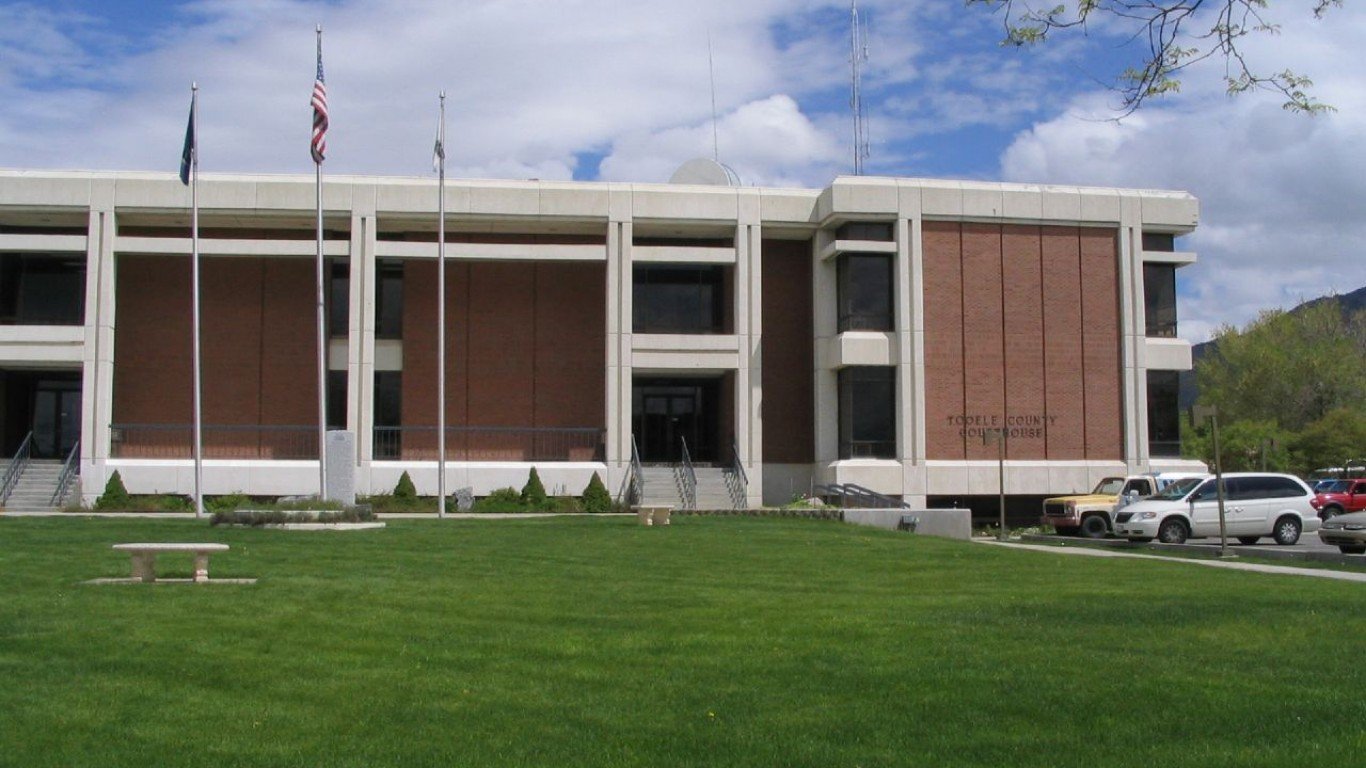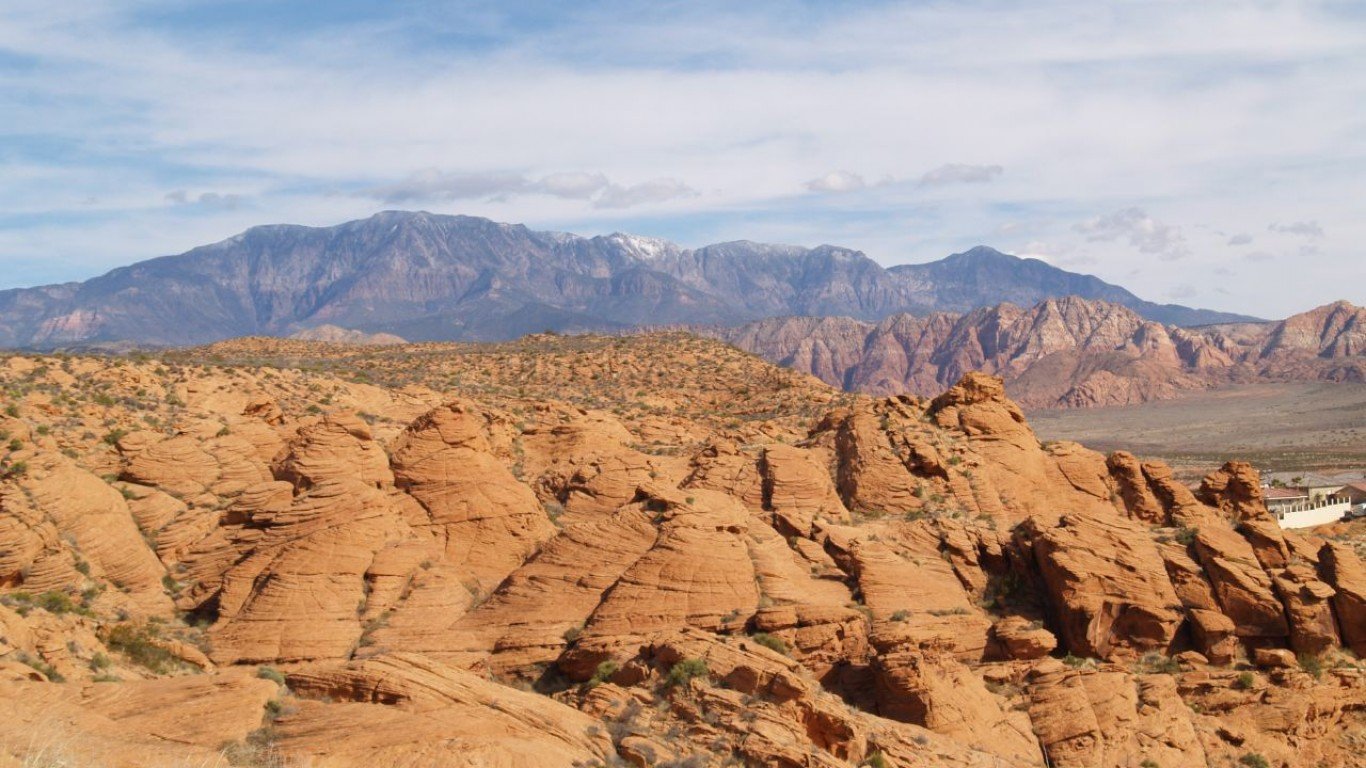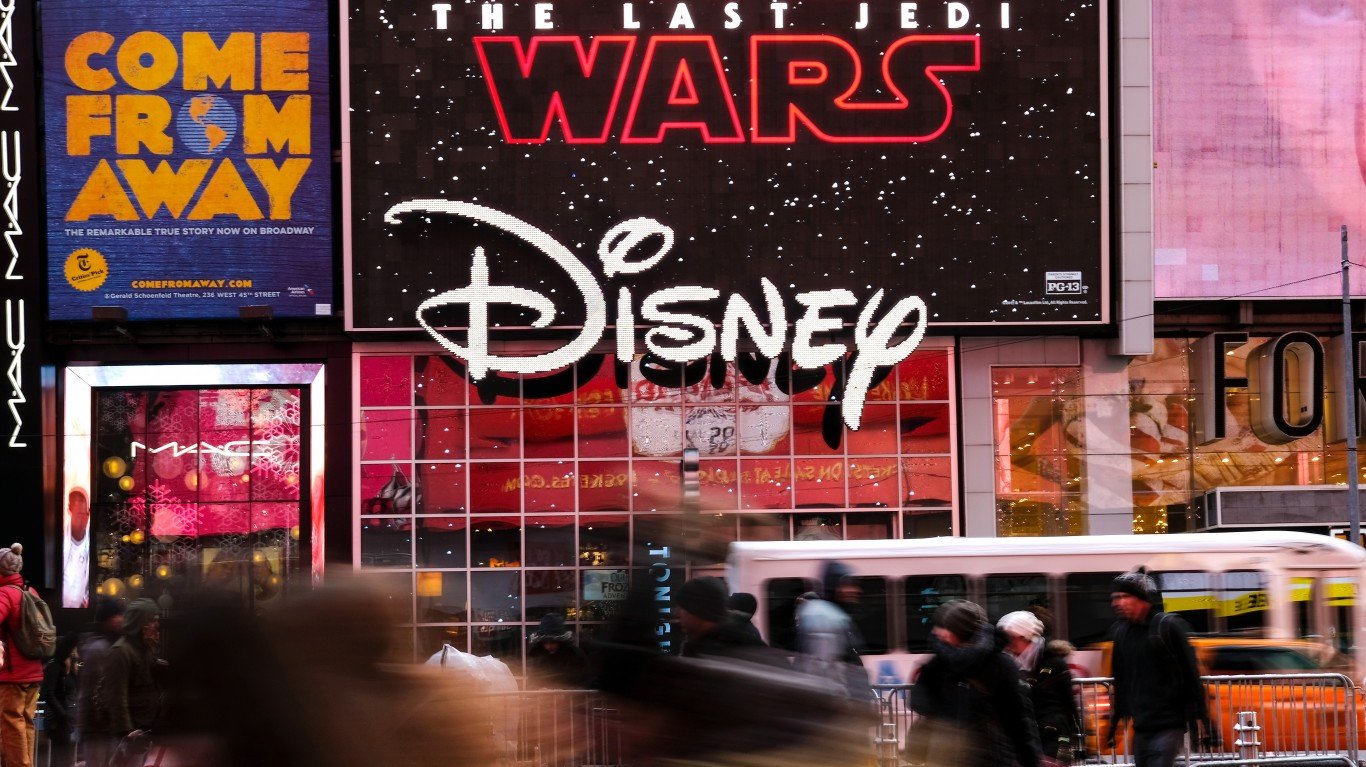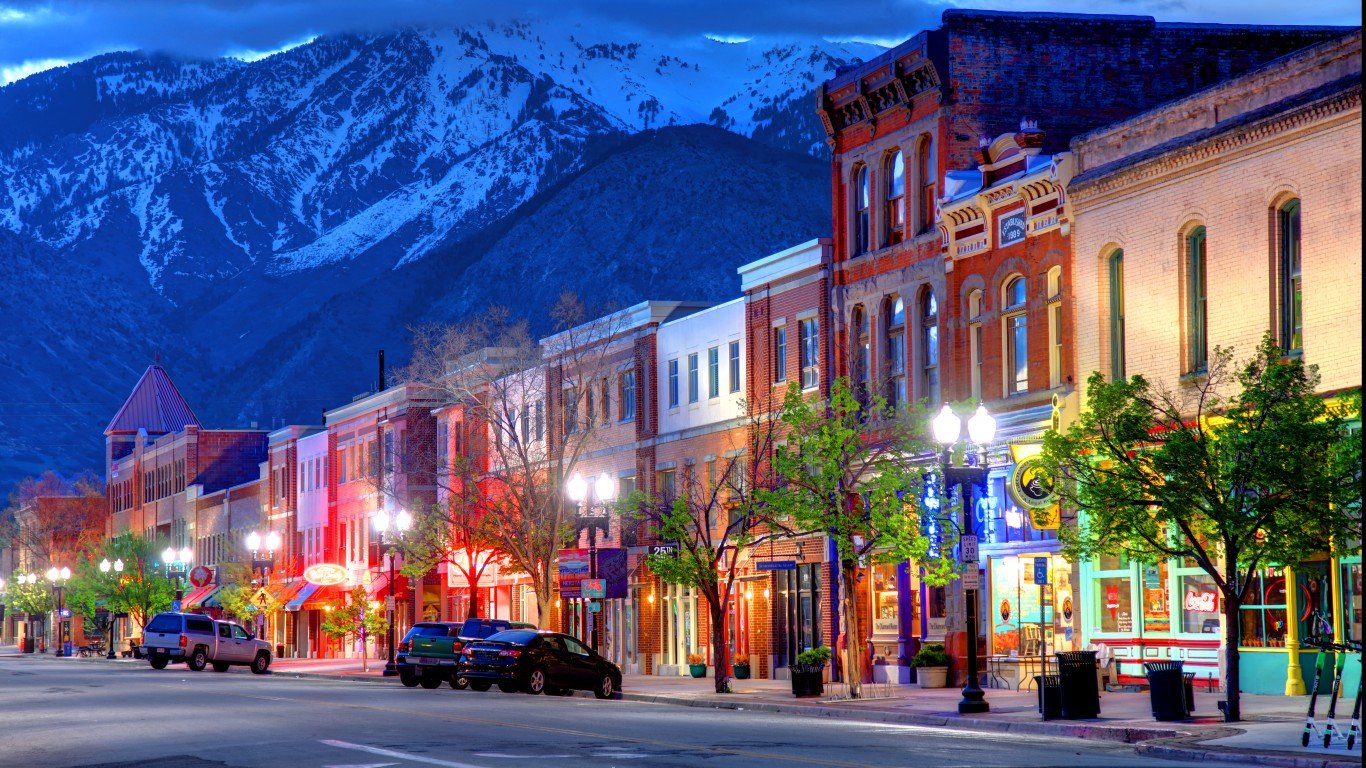

Most entrepreneurs set their sights on a big city to launch their startup for the visibility and access to resources like investment capital and workers found in major metropolitans. The tradeoff being generally higher costs of doing business in a large metro area. But for those hearty entrepreneurs, that’s a price they’re willing to pay.
Yet smaller cities offer advantages that make them fertile ground for building a new company, as well. Lower operating costs means the business’ startup costs aren’t eaten away by rent or salaries. Attracting talent isn’t as much of a problem because workers can be lured in by affordable housing prices and the slower pace of life in a smaller city. Working in a less bustling urban environment also does away with the hellish commutes workers have to deal with in a large city. (These are the world’s worst cities for traffic.)
To identify the 50 best small cities to start a business, 24/7 Wall St. reviewed data from WalletHub, which ranked 1,337 U.S. cities. So if you’re looking to start a new business, where’s the best small city to plant your flag? In Utah.
Twenty-two cities in Utah rank on this list, including No.1 and No. 2 — St. George in the southwestern part of the state and Cedar City, which is 250 miles south of Salt Lake City. It’s not surprising these Utah cities took the top spots. Statewide, U.S. News & World Report ranked Utah No. 3 on its annual list of Best States.
Both Utah cities sport unemployment rates well below the national rate of 5.4%, indicative of a strong economy. Each has a university within its borders: Southern Utah University in Cedar City and Dixie State University in St. George. And since it’s not all about work, in your leisure time, you can visit nearby Zion National Park from both cities. Even better, neither city is the most expensive city to live in Utah.
Click here to see the best small cities to start a business.
To identify the best small cities to start a business, 24/7 Wall St. reviewed data from WalletHub, which ranked 1,337 U.S. cities across three key dimensions: 1) business environment, 2) access to resources, and 3) business costs. The three dimensions were evaluated using 20 relevant metrics like startups per capita for business environment, financing accessibility for access to resources, and cost of living for business costs to name a few. The cities included have populations between 25,000 and 100,000 (in the city proper and not the surrounding metro area).
24/7 Wall St. added population estimates and median household income from the U.S. Census Bureau’s American Community Survey as well as 2019 seasonally-adjusted estimates for June 2021 unemployment rates from the Bureau of Labor Statistics.
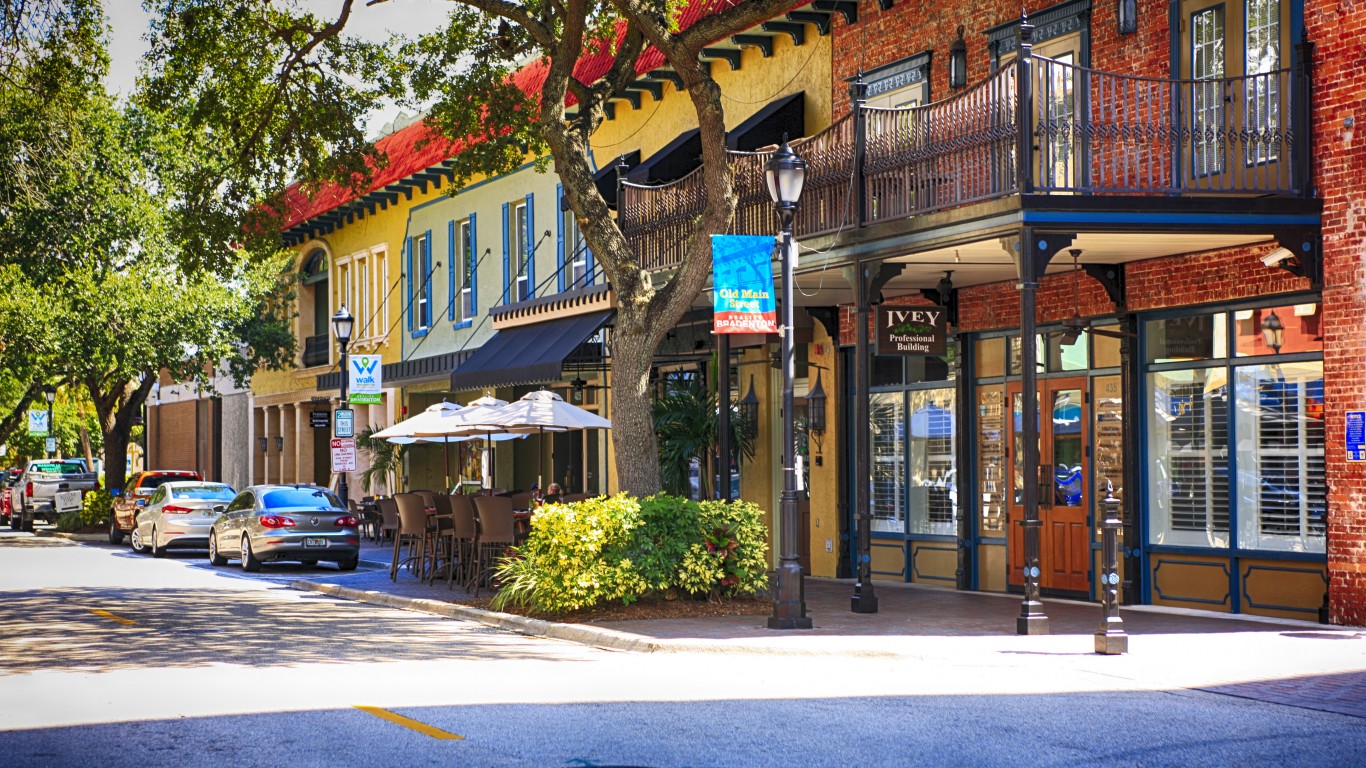
50. Bradenton, Florida
> Overall score: 58.64
> Best ranking business aspect: Business Costs
> Median household income: $46,776– #1,045 out of 1,337 cities
> Unemployment rate in June 2021: 5.4% — #635 out of 1,337 cities
> Population:56,551 — #382 out of 1,337 cities
[in-text-ad]
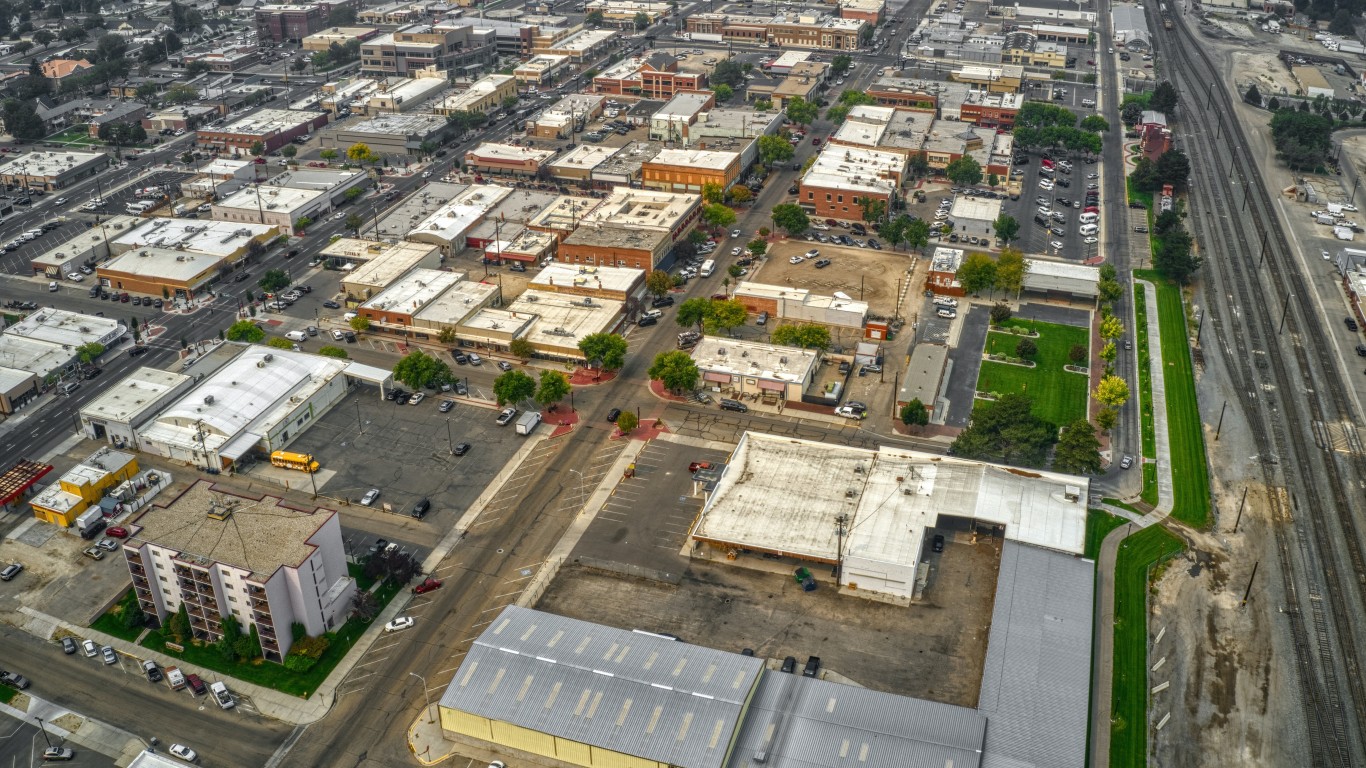
49. Nampa, Idaho
> Overall score: 58.75
> Best ranking business aspect: Business Environment
> Median household income: $48,846– #983 out of 1,337 cities
> Unemployment rate in June 2021: 3.6% — #1,012 out of 1,337 cities
> Population:93,952 — #42 out of 1,337 cities
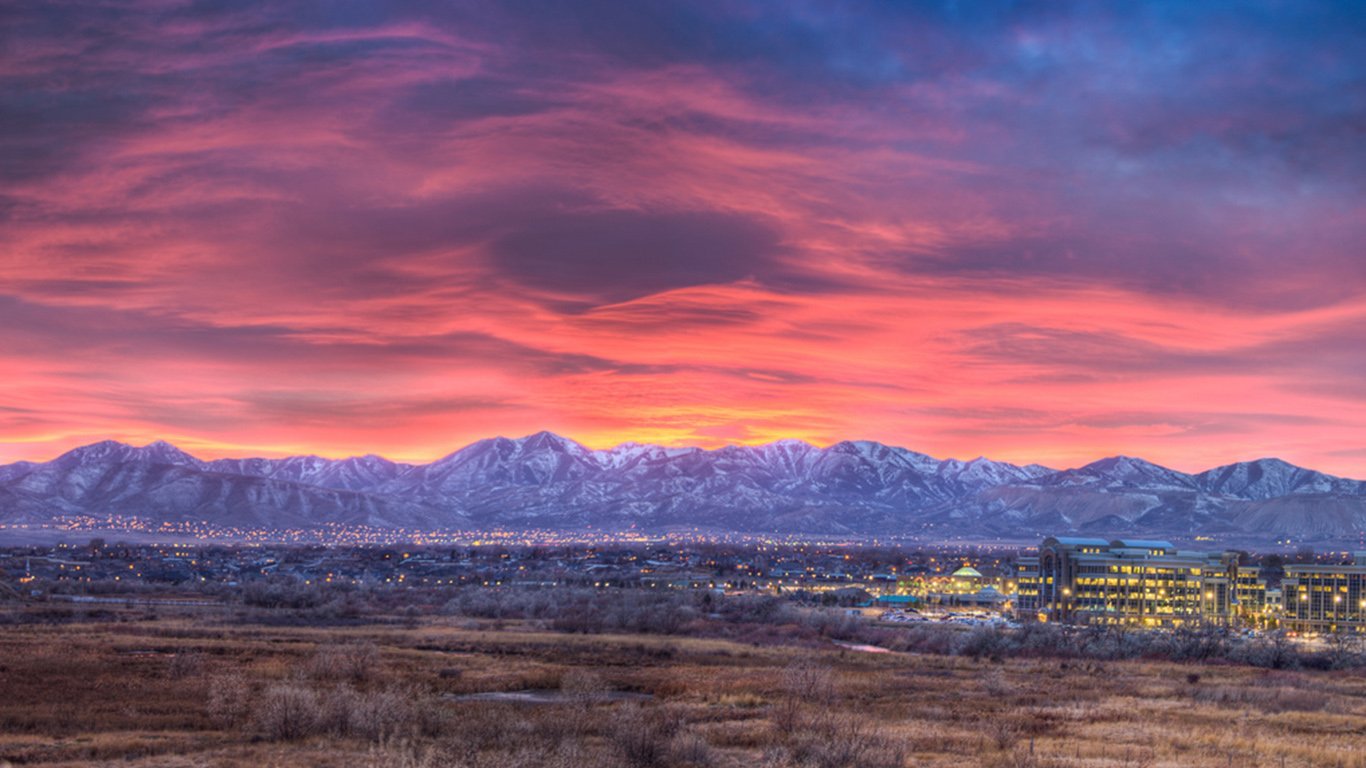
48. South Jordan, Utah
> Overall score: 58.75
> Best ranking business aspect: Access to Resources
> Median household income: $104,597– #166 out of 1,337 cities
> Unemployment rate in June 2021: 2.8% — #1,104 out of 1,337 cities
> Population:71,198 — #208 out of 1,337 cities
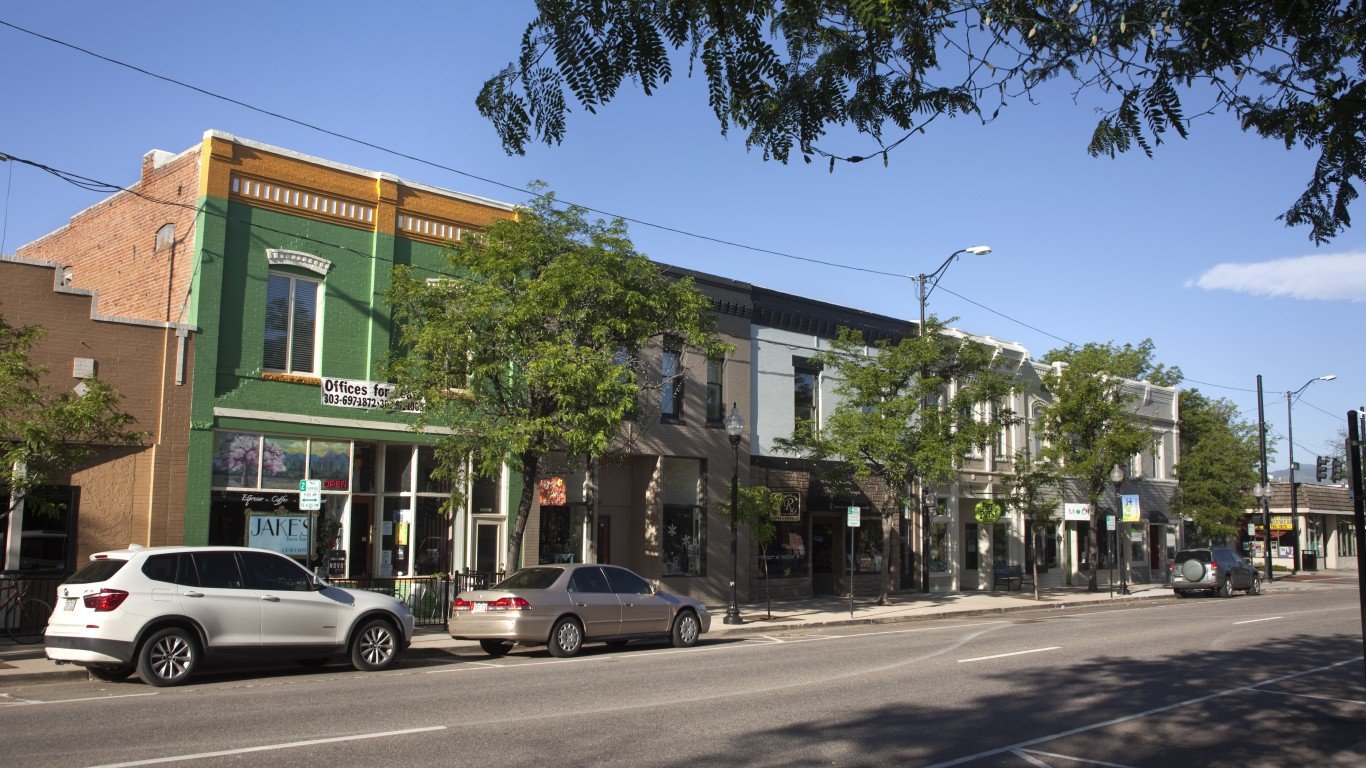
47. Littleton, Colorado
> Overall score: 58.75
> Best ranking business aspect: Business Environment
> Median household income: $76,015– #463 out of 1,337 cities
> Unemployment rate in June 2021: 5.7% — #572 out of 1,337 cities
> Population:47,989 — #530 out of 1,337 cities
[in-text-ad-2]

46. Gladstone, Missouri
> Overall score: 58.76
> Best ranking business aspect: Business Environment
> Median household income: $59,018– #762 out of 1,337 cities
> Unemployment rate in June 2021: 7.1% — #326 out of 1,337 cities
> Population:27,126 — #1,166 out of 1,337 cities
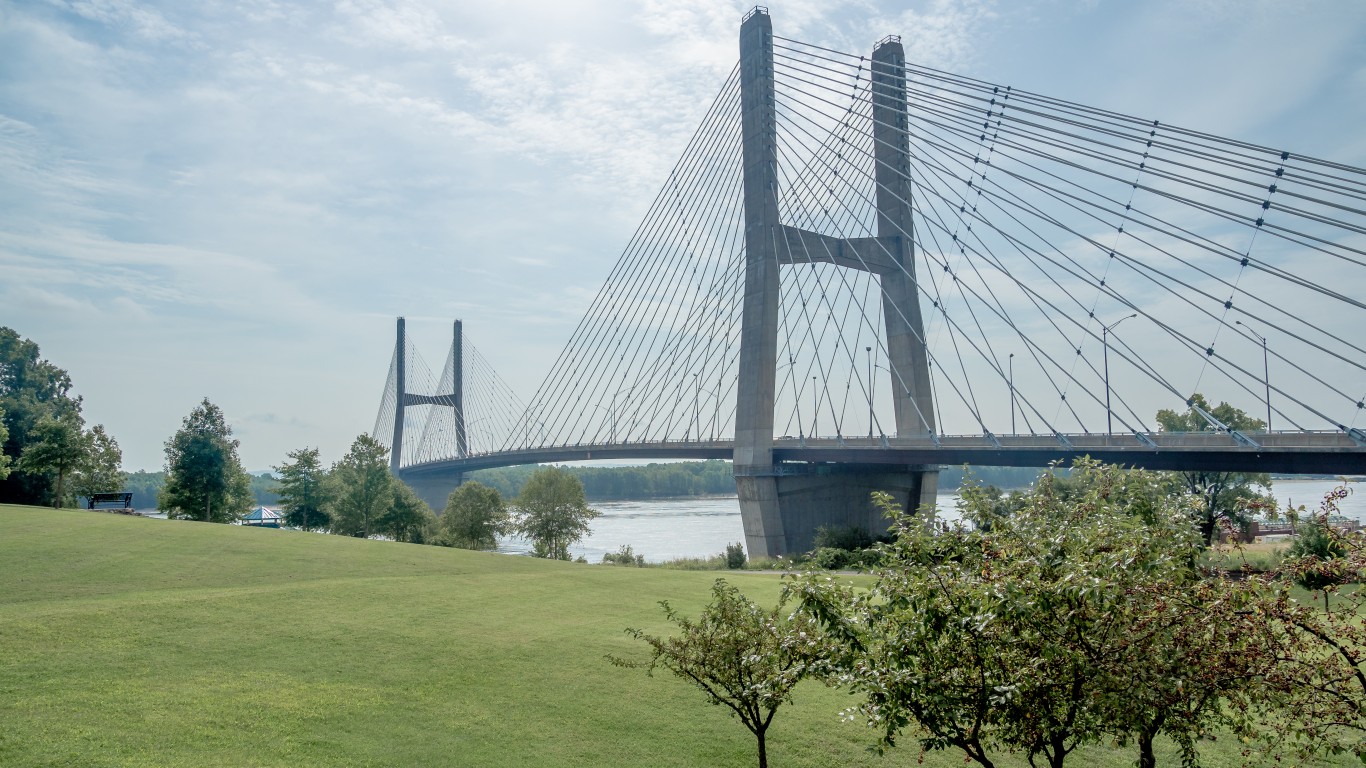
45. Cape Girardeau, Missouri
> Overall score: 58.77
> Best ranking business aspect: Business Costs
> Median household income: $45,733– #1,071 out of 1,337 cities
> Unemployment rate in June 2021: 4.6% — #817 out of 1,337 cities
> Population:39,566 — #710 out of 1,337 cities
[in-text-ad]
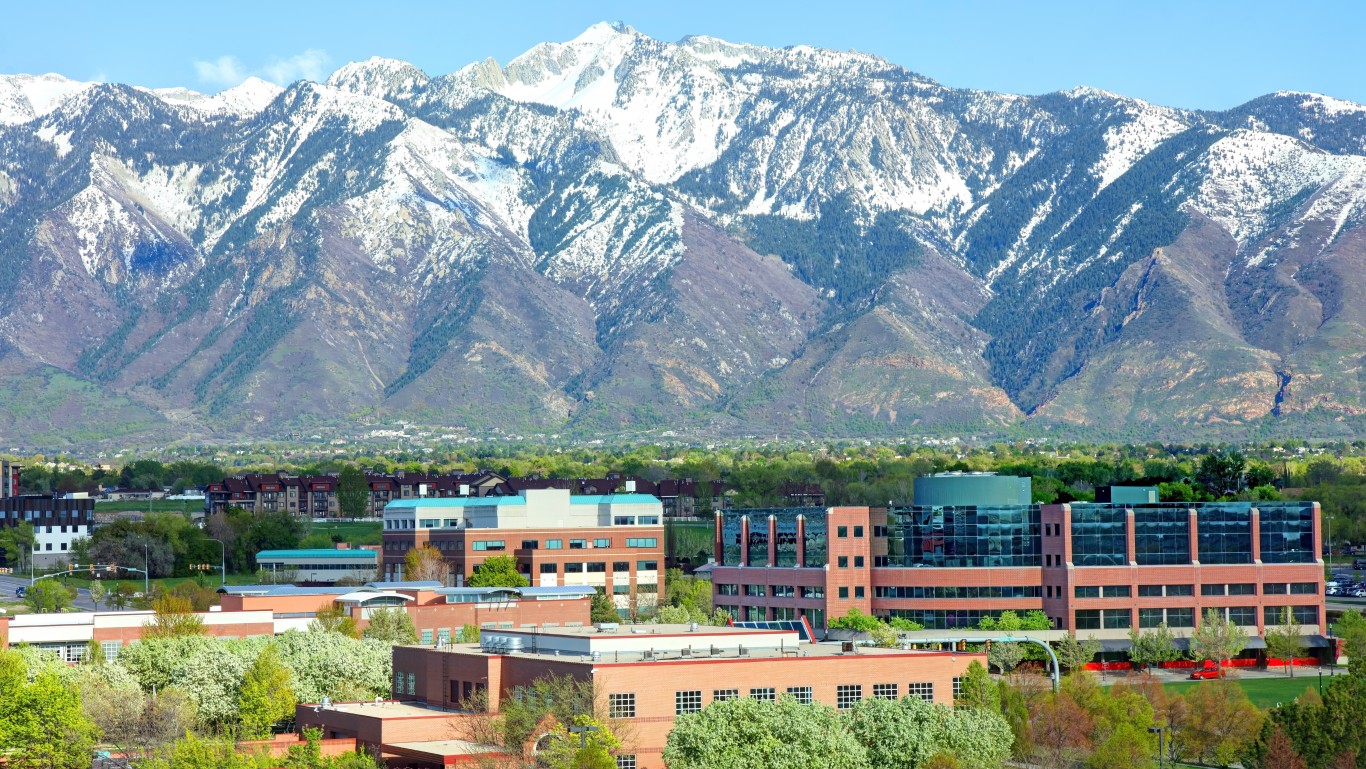
44. Sandy, Utah
> Overall score: 58.81
> Best ranking business aspect: Access to Resources
> Median household income: $94,018– #252 out of 1,337 cities
> Unemployment rate in June 2021: 3.1% — #1,074 out of 1,337 cities
> Population:96,127 — #24 out of 1,337 cities

43. Grand Junction, Colorado
> Overall score: 58.92
> Best ranking business aspect: Business Environment
> Median household income: $52,504– #899 out of 1,337 cities
> Unemployment rate in June 2021: 7.2% — #310 out of 1,337 cities
> Population:62,062 — #314 out of 1,337 cities
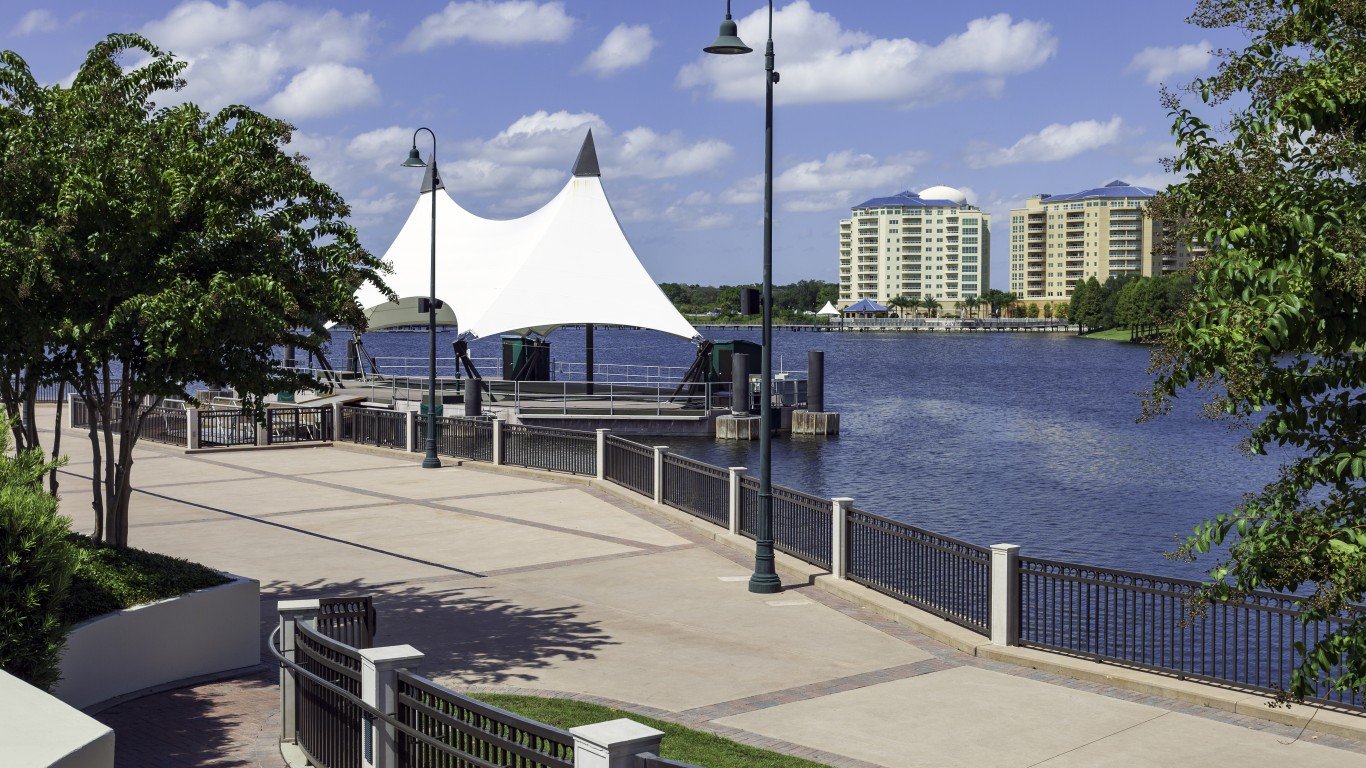
42. Altamonte Springs, Florida
> Overall score: 58.95
> Best ranking business aspect: Business Environment
> Median household income: $52,888– #887 out of 1,337 cities
> Unemployment rate in June 2021: 5.3% — #666 out of 1,337 cities
> Population:43,810 — #599 out of 1,337 cities
[in-text-ad-2]
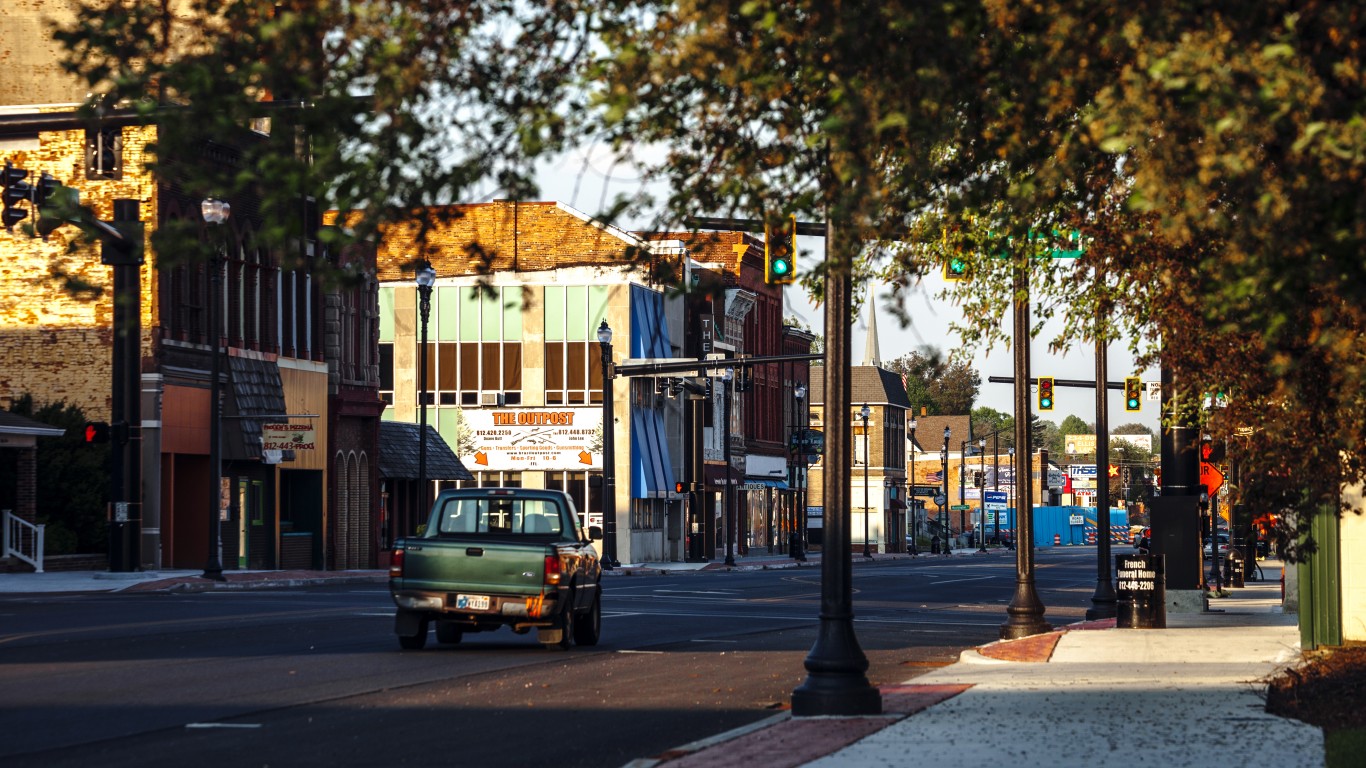
41. Terre Haute, Indiana
> Overall score: 59.10
> Best ranking business aspect: Business Costs
> Median household income: $36,406– #1,250 out of 1,337 cities
> Unemployment rate in June 2021: 6.5% — #409 out of 1,337 cities
> Population:60,673 — #330 out of 1,337 cities
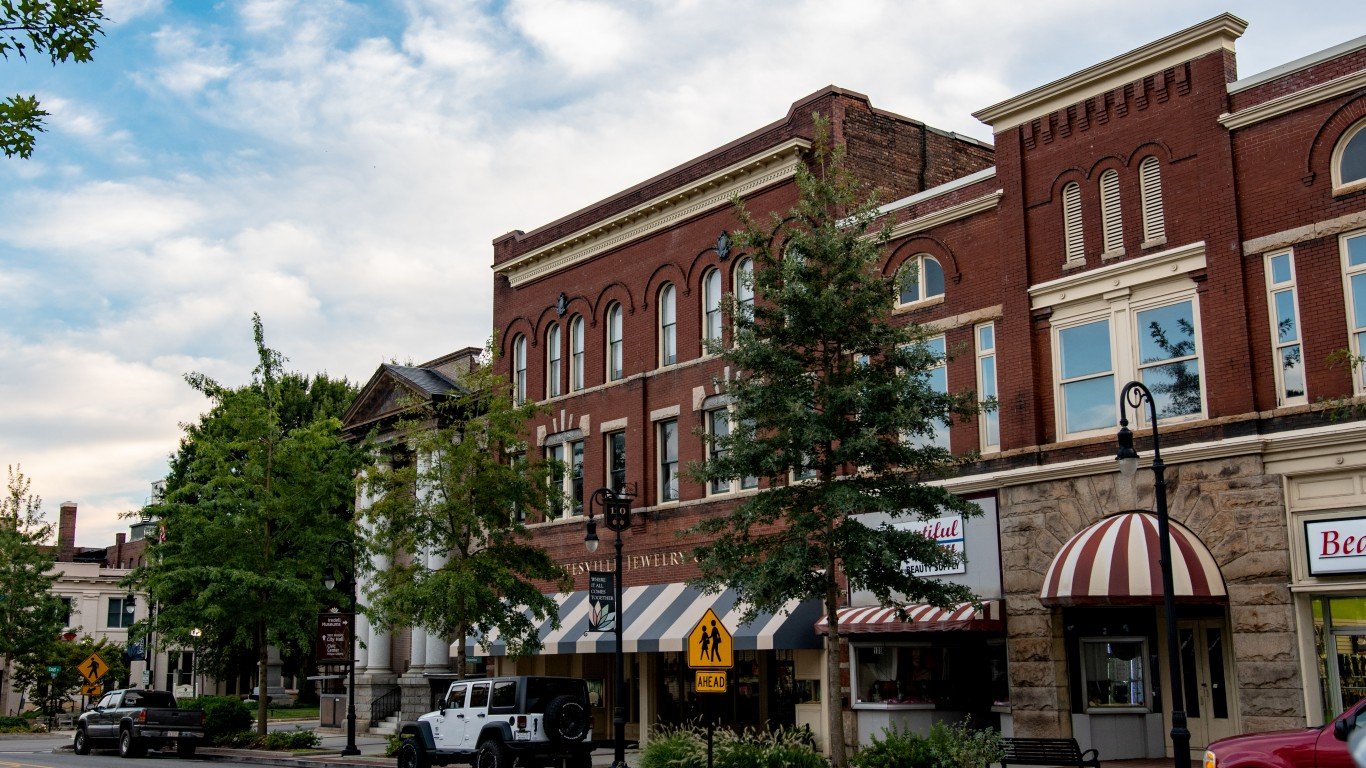
40. Statesville, North Carolina
> Overall score: 59.15
> Best ranking business aspect: Business Costs
> Median household income: $39,987– #1,202 out of 1,337 cities
> Unemployment rate in June 2021: 6.7% — #378 out of 1,337 cities
> Population:26,685 — #1,192 out of 1,337 cities
[in-text-ad]
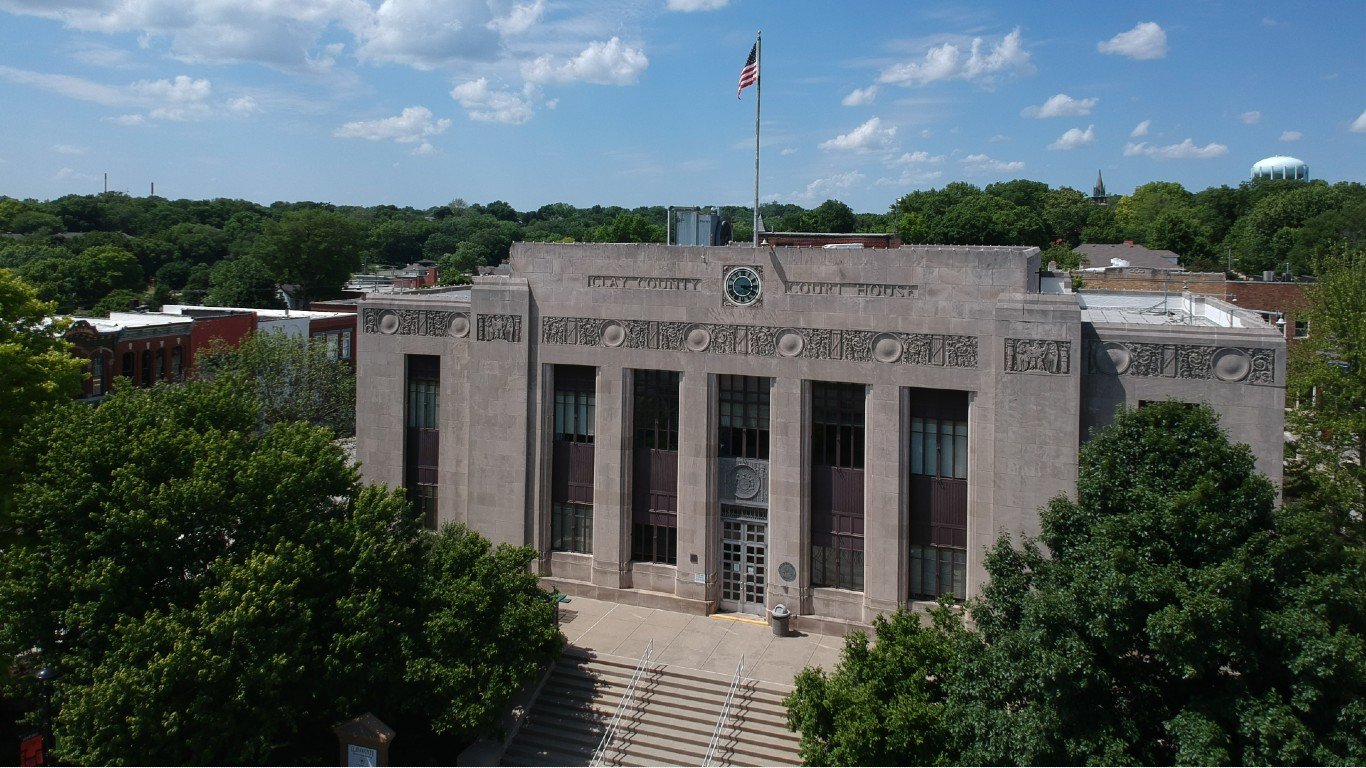
39. Liberty, Missouri
> Overall score: 59.22
> Best ranking business aspect: Access to Resources
> Median household income: $76,577– #457 out of 1,337 cities
> Unemployment rate in June 2021: 7.6% — #257 out of 1,337 cities
> Population:31,328 — #981 out of 1,337 cities
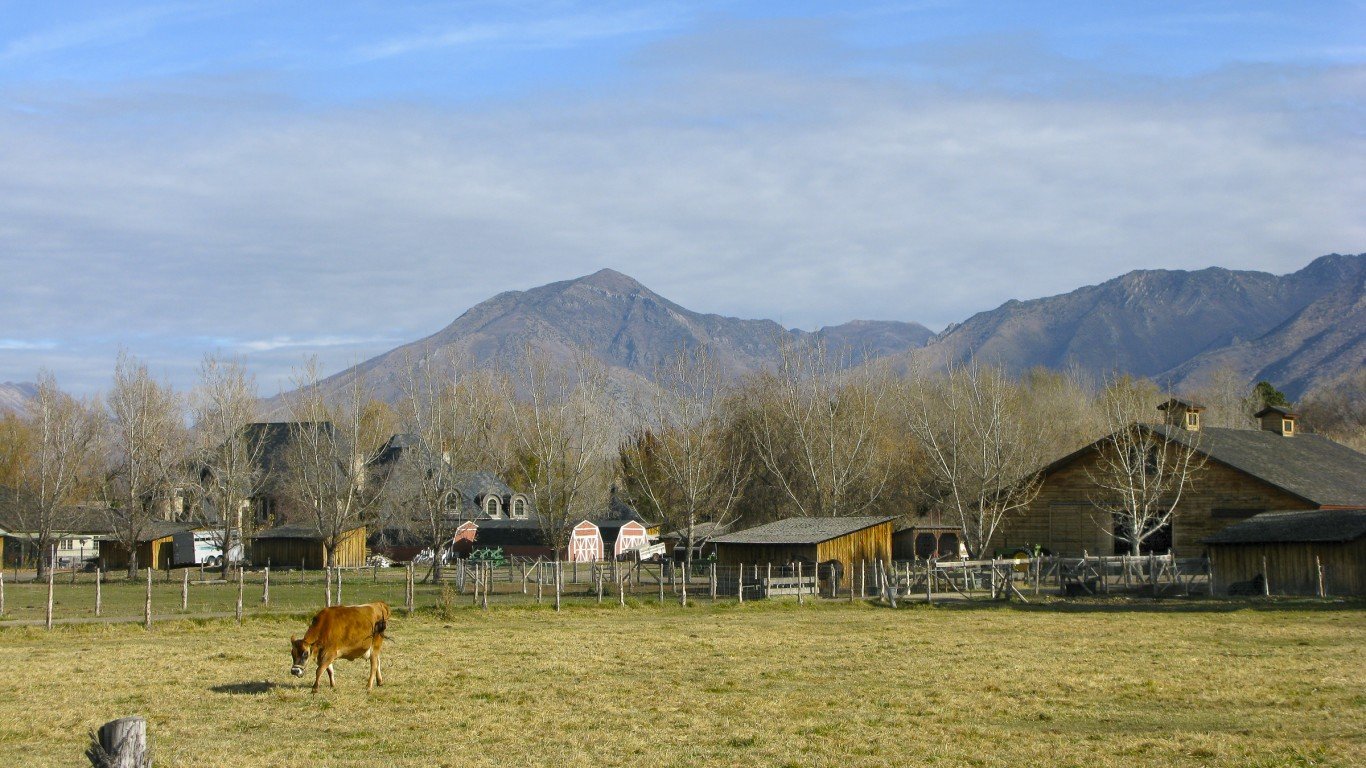
38. Murray, Utah
> Overall score: 59.24
> Best ranking business aspect: Business Environment
> Median household income: $64,470– #654 out of 1,337 cities
> Unemployment rate in June 2021: 3.3% — #1,051 out of 1,337 cities
> Population:49,105 — #506 out of 1,337 cities

37. Herriman, Utah
> Overall score: 59.35
> Best ranking business aspect: Access to Resources
> Median household income: $101,460– #189 out of 1,337 cities
> Unemployment rate in June 2021: n/a
> Population:40,149 — #689 out of 1,337 cities
[in-text-ad-2]
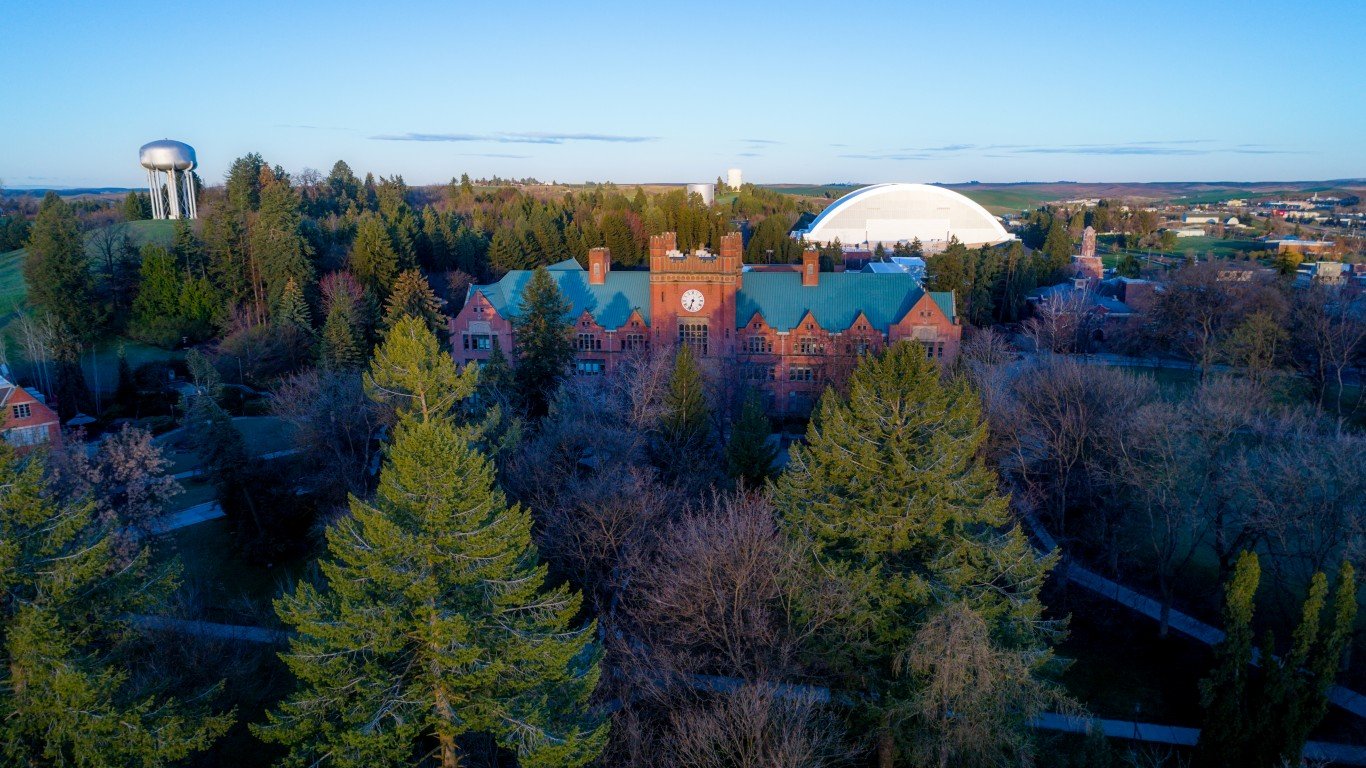
36. Moscow, Idaho
> Overall score: 59.39
> Best ranking business aspect: Access to Resources
> Median household income: $41,896– #1,168 out of 1,337 cities
> Unemployment rate in June 2021: n/a
> Population:25,319 — #1,280 out of 1,337 cities
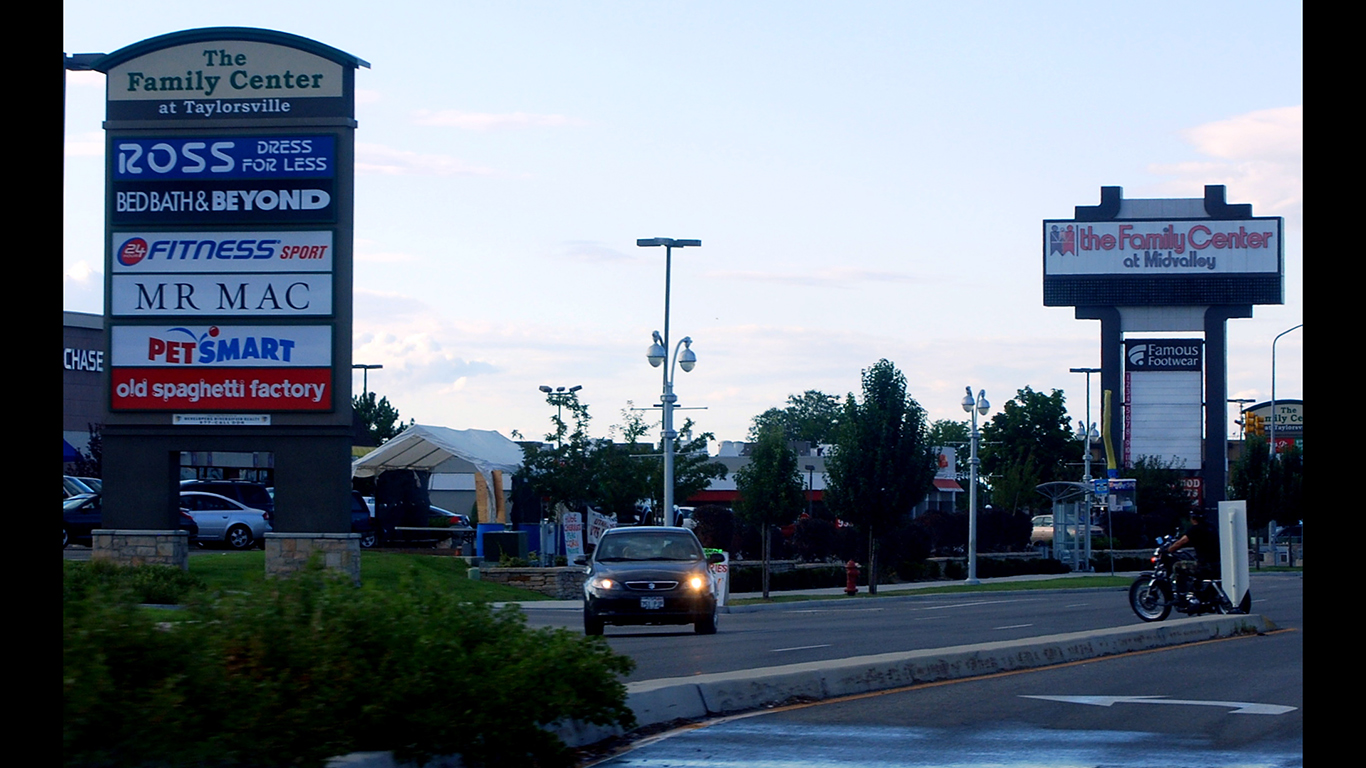
35. Taylorsville, Utah
> Overall score: 59.42
> Best ranking business aspect: Business Environment
> Median household income: $66,311– #617 out of 1,337 cities
> Unemployment rate in June 2021: 3.2% — #1,064 out of 1,337 cities
> Population:60,138 — #338 out of 1,337 cities
[in-text-ad]

34. Spanish Fork, Utah
> Overall score: 59.46
> Best ranking business aspect: Business Environment
> Median household income: $78,490– #429 out of 1,337 cities
> Unemployment rate in June 2021: 2.6% — #1,113 out of 1,337 cities
> Population:39,371 — #714 out of 1,337 cities
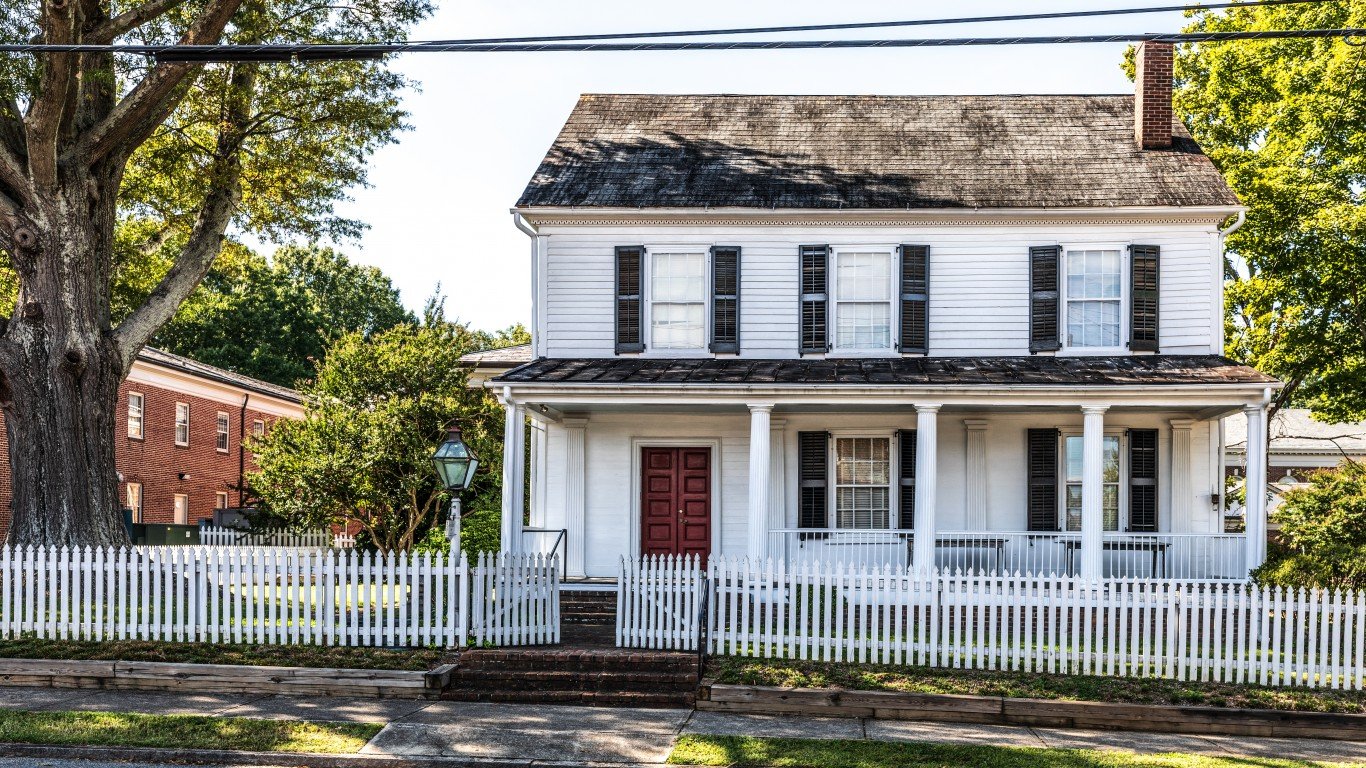
33. Salisbury, North Carolina
> Overall score: 59.58
> Best ranking business aspect: Business Costs
> Median household income: $41,901– #1,167 out of 1,337 cities
> Unemployment rate in June 2021: 6.7% — #378 out of 1,337 cities
> Population:33,727 — #890 out of 1,337 cities
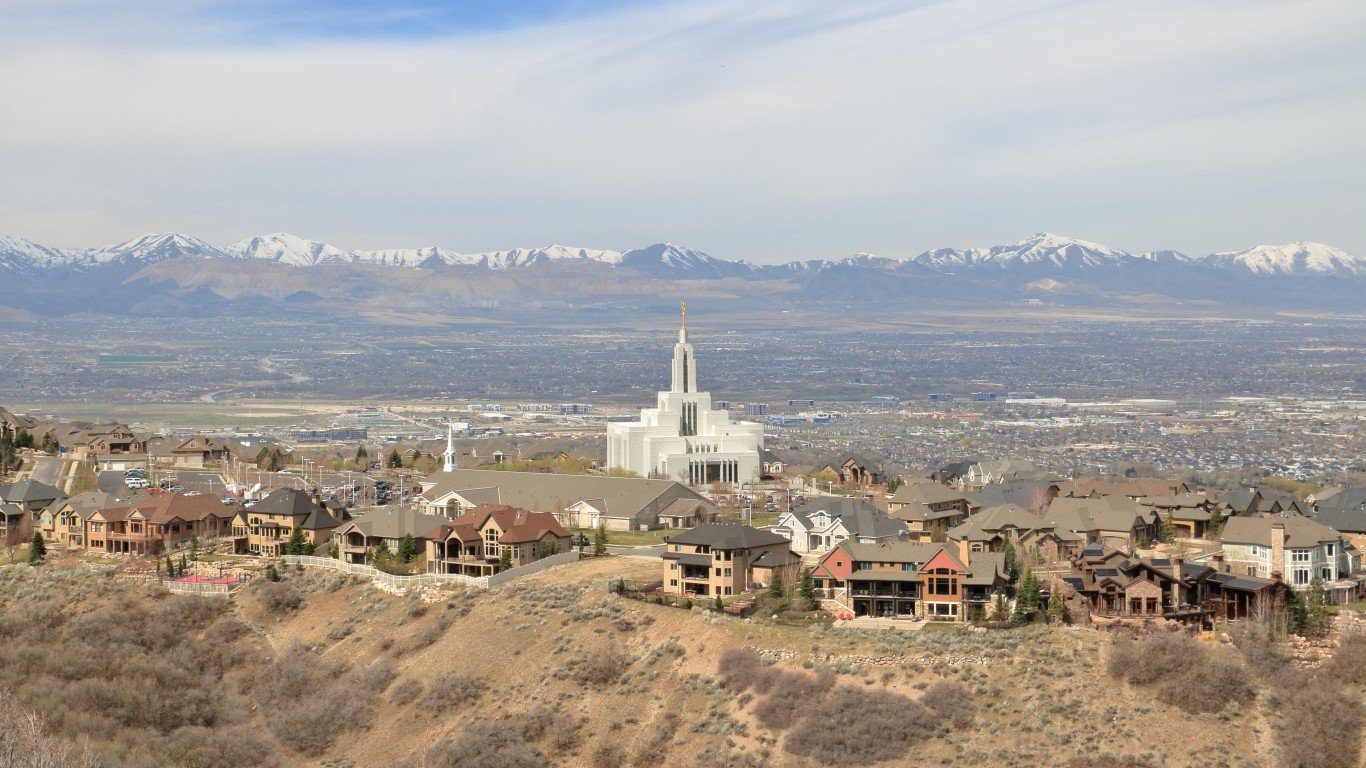
32. Draper, Utah
> Overall score: 59.61
> Best ranking business aspect: Access to Resources
> Median household income: $117,266– #83 out of 1,337 cities
> Unemployment rate in June 2021: 3.3% — #1,051 out of 1,337 cities
> Population:48,000 — #529 out of 1,337 cities
[in-text-ad-2]
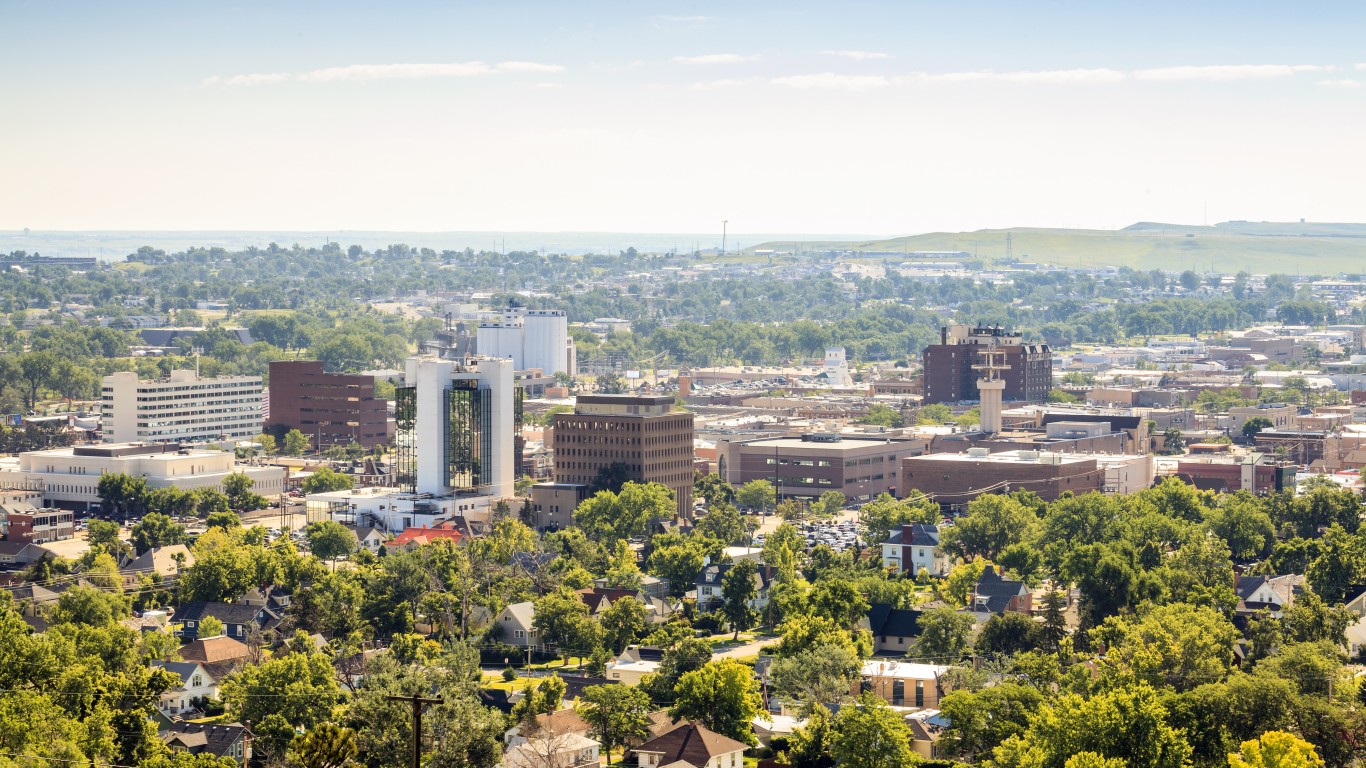
31. Rapid City, South Dakota
> Overall score: 59.61
> Best ranking business aspect: Business Costs
> Median household income: $52,351– #901 out of 1,337 cities
> Unemployment rate in June 2021: 3.4% — #1,039 out of 1,337 cities
> Population:75,258 — #172 out of 1,337 cities
30. Tooele, Utah
> Overall score: 59.62
> Best ranking business aspect: Access to Resources
> Median household income: $63,851– #660 out of 1,337 cities
> Unemployment rate in June 2021: 3.7% — #997 out of 1,337 cities
> Population:34,535 — #865 out of 1,337 cities
[in-text-ad]

29. Carlsbad, New Mexico
> Overall score: 59.75
> Best ranking business aspect: Business Environment
> Median household income: $69,193– #574 out of 1,337 cities
> Unemployment rate in June 2021: 8.4% — #176 out of 1,337 cities
> Population:29,158 — #1,078 out of 1,337 cities

28. Immokalee, Florida
> Overall score: 59.78
> Best ranking business aspect: Business Costs
> Median household income: $30,885– #1,296 out of 1,337 cities
> Unemployment rate in June 2021: n/a
> Population:26,597 — #1,203 out of 1,337 cities

27. American Fork, Utah
> Overall score: 59.80
> Best ranking business aspect: Business Environment
> Median household income: $77,857– #440 out of 1,337 cities
> Unemployment rate in June 2021: 3.2% — #1,064 out of 1,337 cities
> Population:30,399 — #1,022 out of 1,337 cities
[in-text-ad-2]
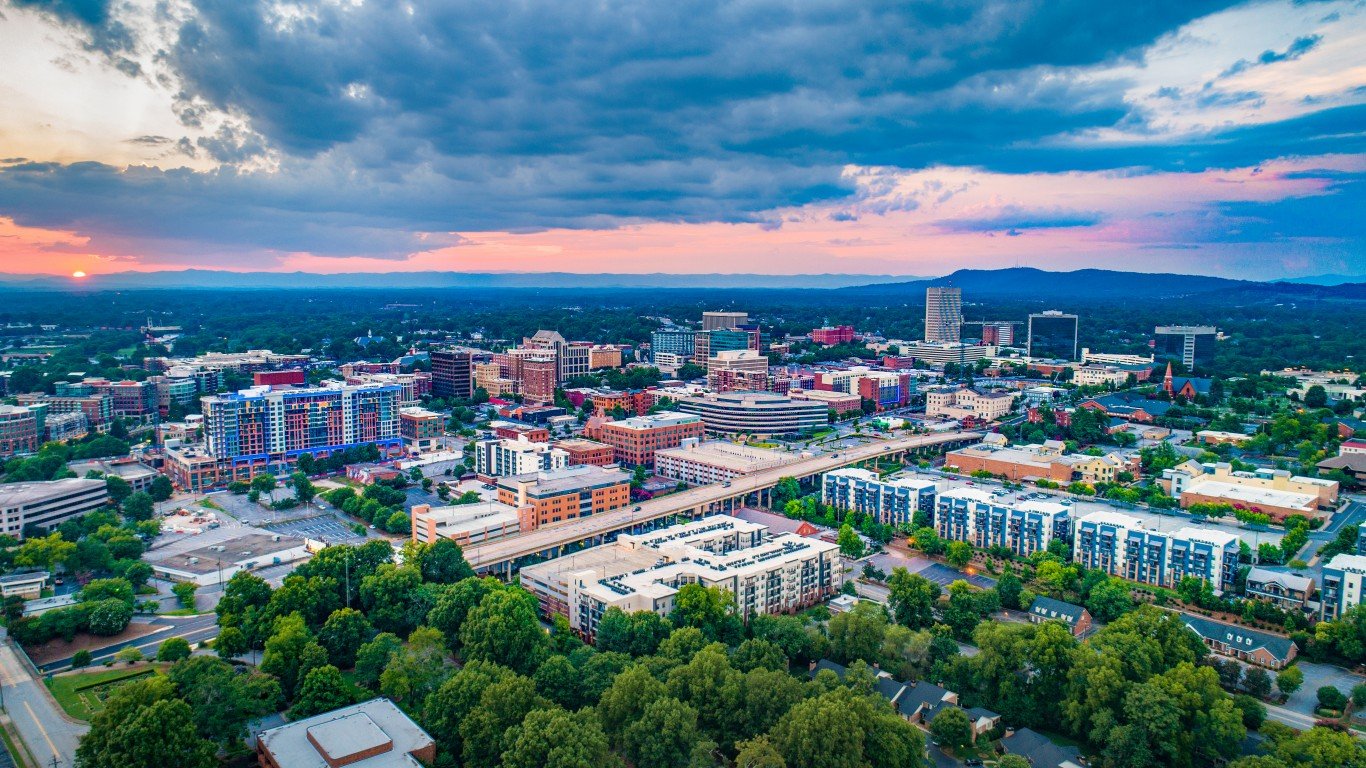
26. Greenville, South Carolina
> Overall score: 59.86
> Best ranking business aspect: Access to Resources
> Median household income: $56,609– #804 out of 1,337 cities
> Unemployment rate in June 2021: 3.9% — #960 out of 1,337 cities
> Population:67,737 — #241 out of 1,337 cities
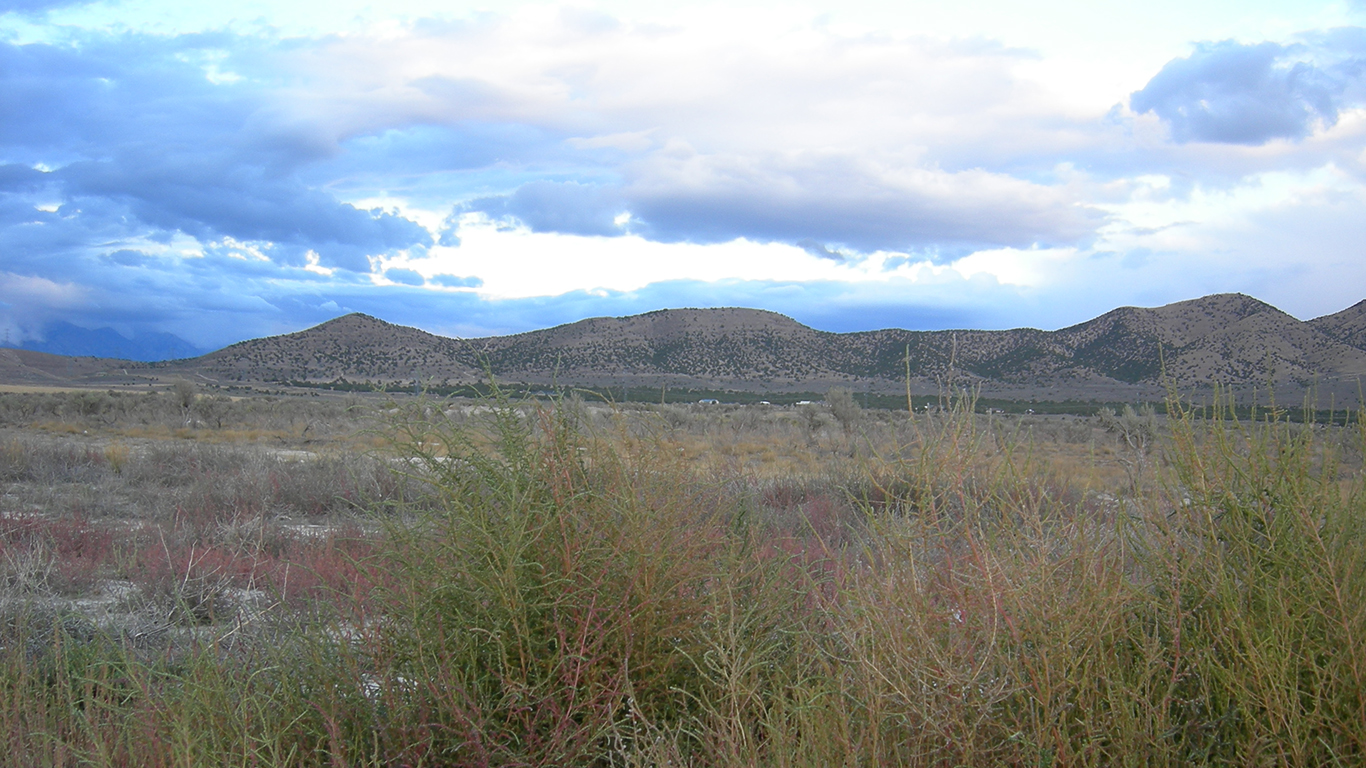
25. Eagle Mountain, Utah
> Overall score: 59.87
> Best ranking business aspect: Business Environment
> Median household income: $83,290– #361 out of 1,337 cities
> Unemployment rate in June 2021: n/a
> Population:32,412 — #942 out of 1,337 cities
[in-text-ad]
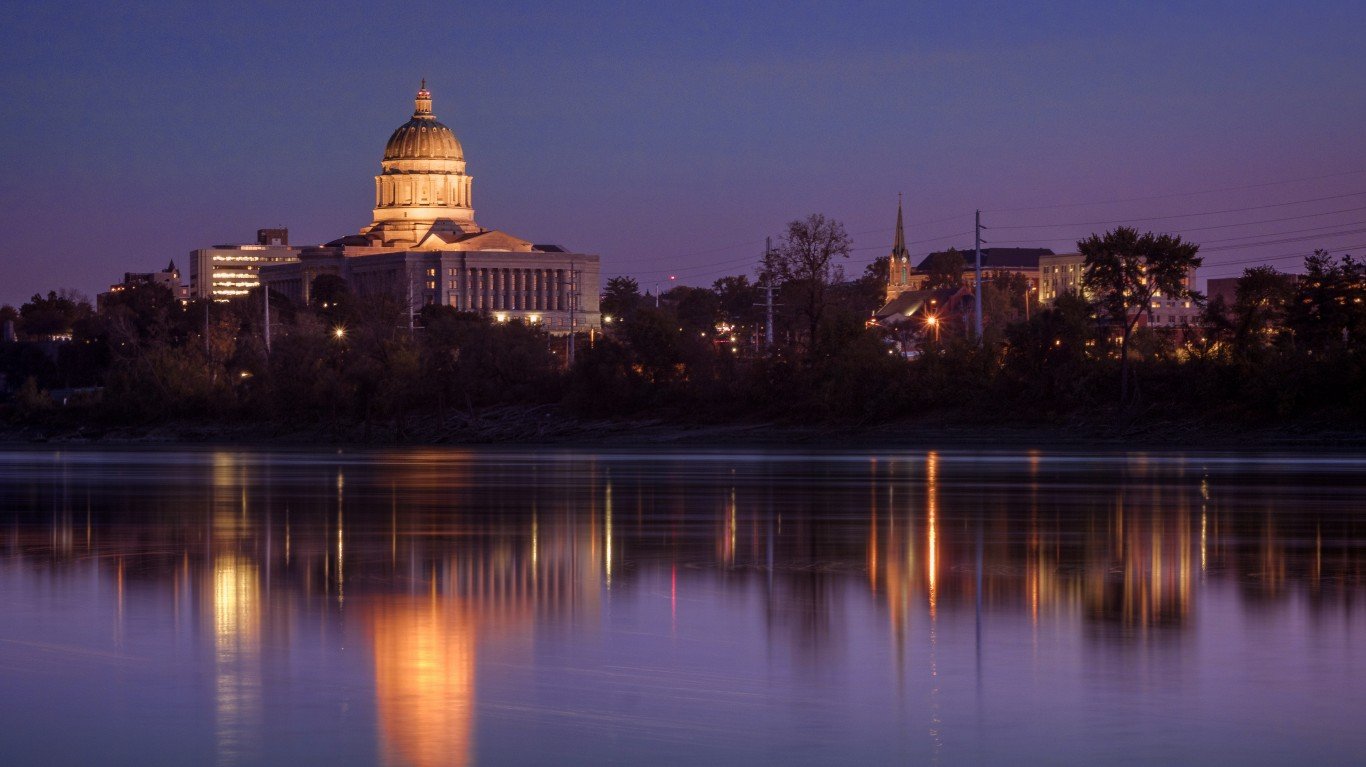
24. Jefferson City, Missouri
> Overall score: 59.91
> Best ranking business aspect: Business Costs
> Median household income: $52,253– #906 out of 1,337 cities
> Unemployment rate in June 2021: 3.7% — #997 out of 1,337 cities
> Population:42,919 — #616 out of 1,337 cities
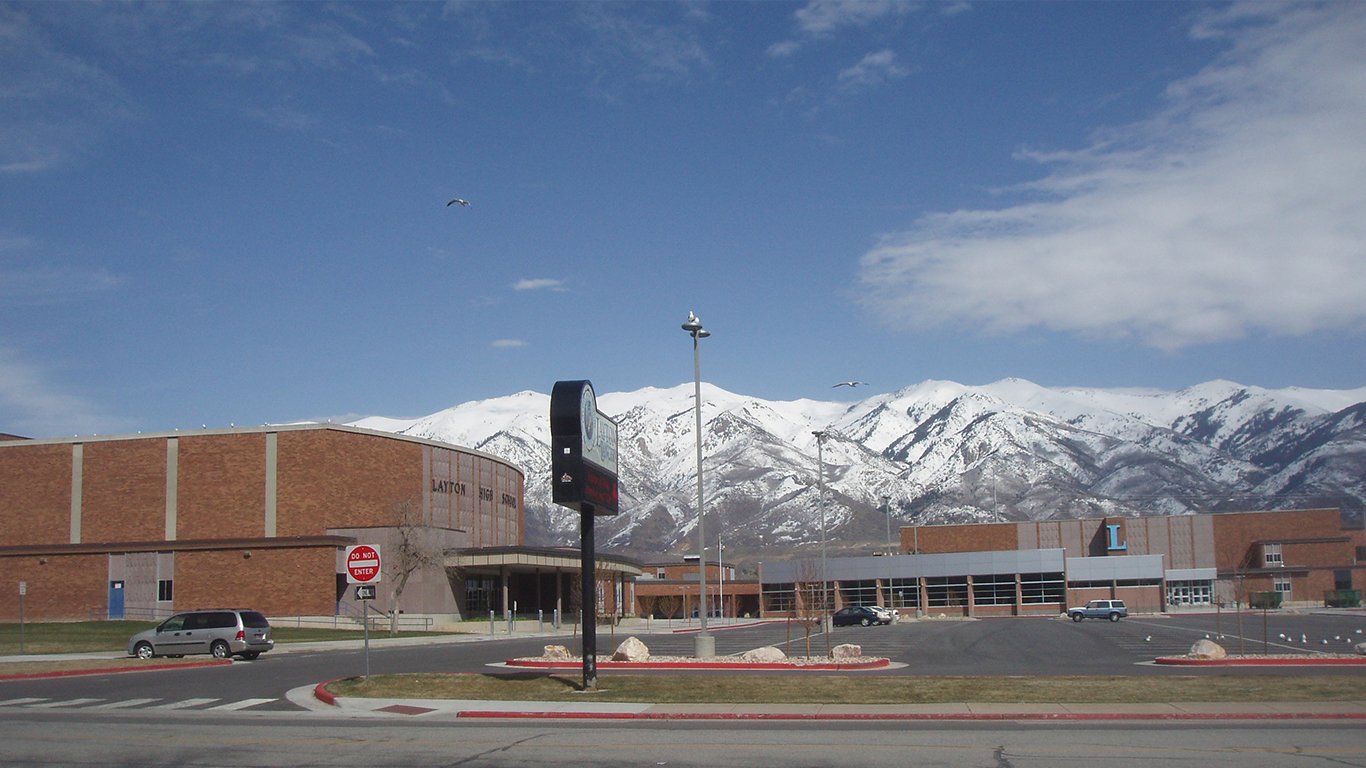
23. Layton, Utah
> Overall score: 59.97
> Best ranking business aspect: Access to Resources
> Median household income: $77,426– #446 out of 1,337 cities
> Unemployment rate in June 2021: 2.8% — #1,104 out of 1,337 cities
> Population:76,197 — #158 out of 1,337 cities

22. Morrisville, North Carolina
> Overall score: 60.14
> Best ranking business aspect: Business Environment
> Median household income: $101,738– #185 out of 1,337 cities
> Unemployment rate in June 2021: n/a
> Population:26,280 — #1,225 out of 1,337 cities
[in-text-ad-2]

21. Ogden, Utah
> Overall score: 60.17
> Best ranking business aspect: Access to Resources
> Median household income: $50,061– #957 out of 1,337 cities
> Unemployment rate in June 2021: 3.7% — #997 out of 1,337 cities
> Population:86,833 — #82 out of 1,337 cities
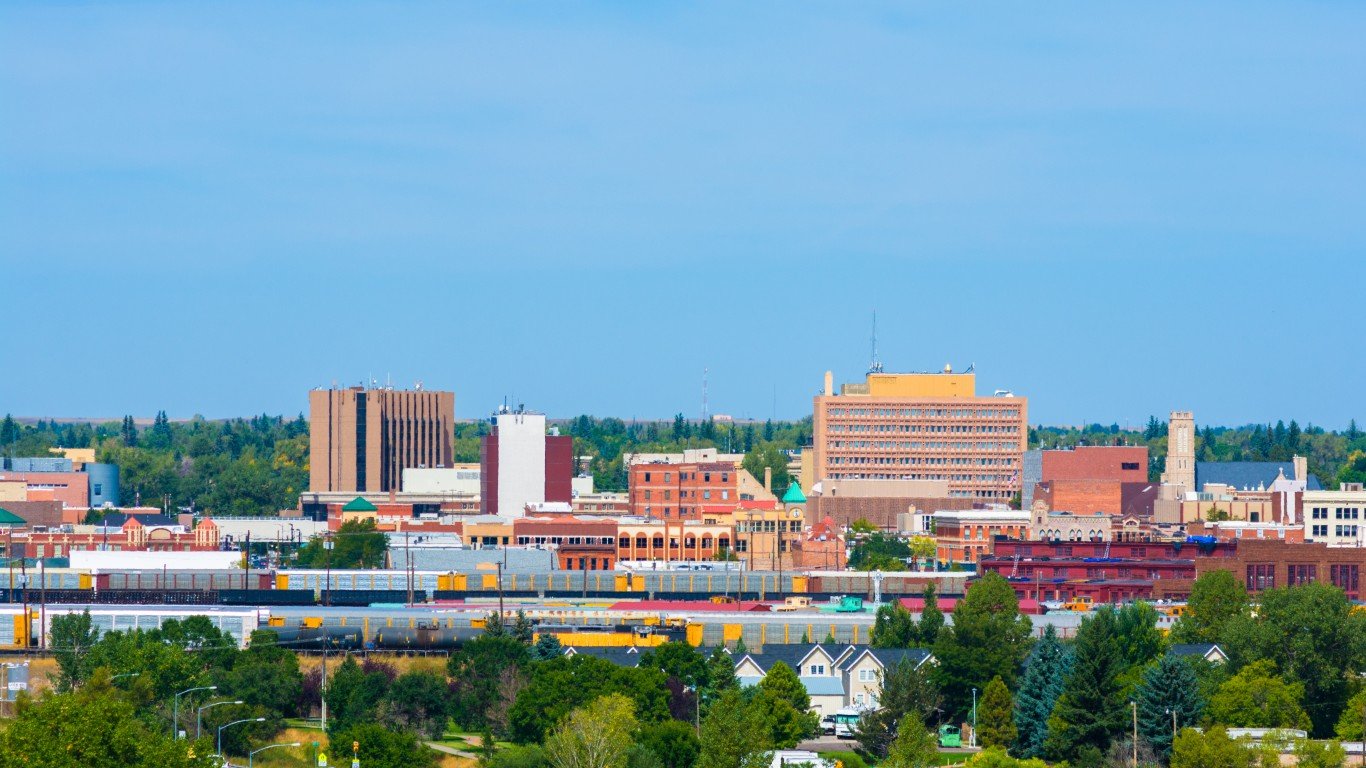
20. Cheyenne, Wyoming
> Overall score: 60.28
> Best ranking business aspect: Business Environment
> Median household income: $64,598– #647 out of 1,337 cities
> Unemployment rate in June 2021: 5.1% — #716 out of 1,337 cities
> Population:63,607 — #292 out of 1,337 cities
[in-text-ad]
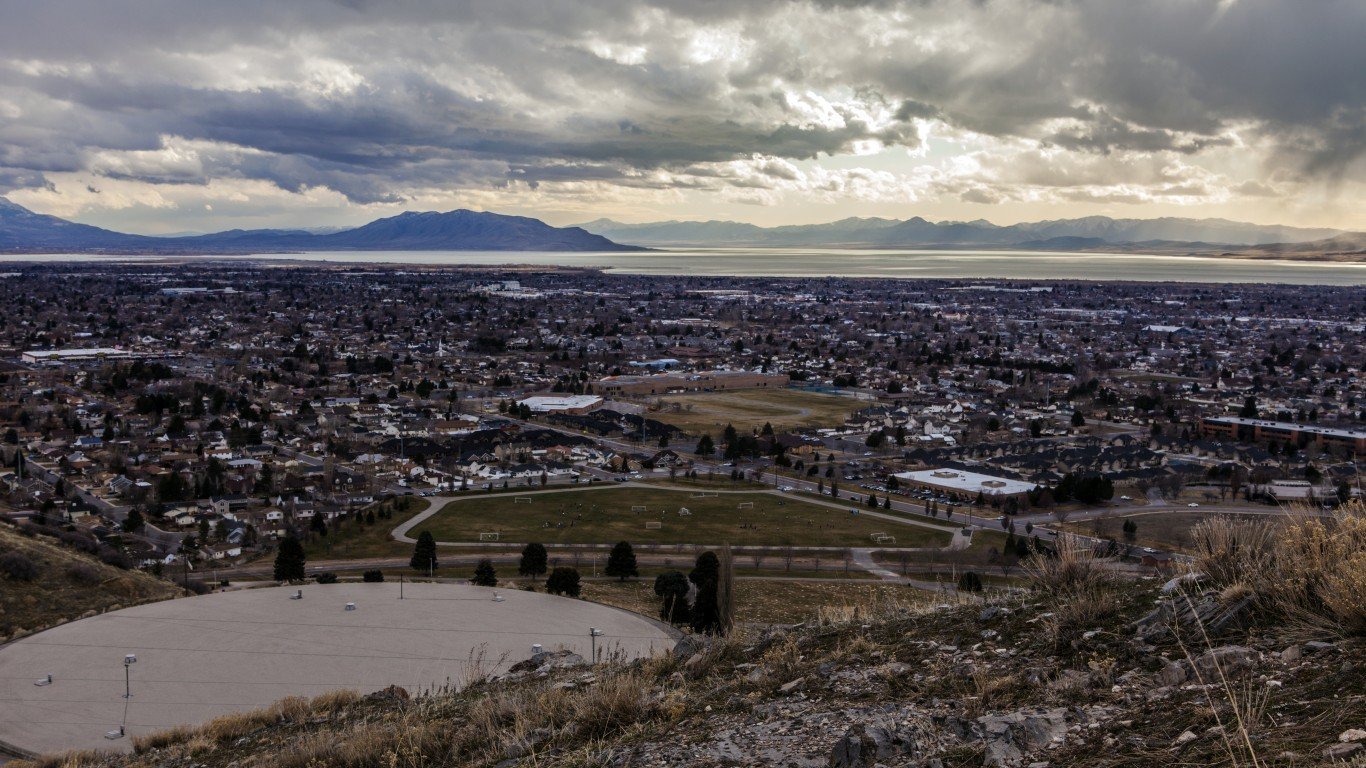
19. Orem, Utah
> Overall score: 60.51
> Best ranking business aspect: Business Environment
> Median household income: $64,590– #649 out of 1,337 cities
> Unemployment rate in June 2021: 2.9% — #1,094 out of 1,337 cities
> Population:96,725 — #17 out of 1,337 cities

18. Lehi, Utah
> Overall score: 60.70
> Best ranking business aspect: Business Environment
> Median household income: $95,510– #244 out of 1,337 cities
> Unemployment rate in June 2021: 2.8% — #1,104 out of 1,337 cities
> Population:64,006 — #287 out of 1,337 cities
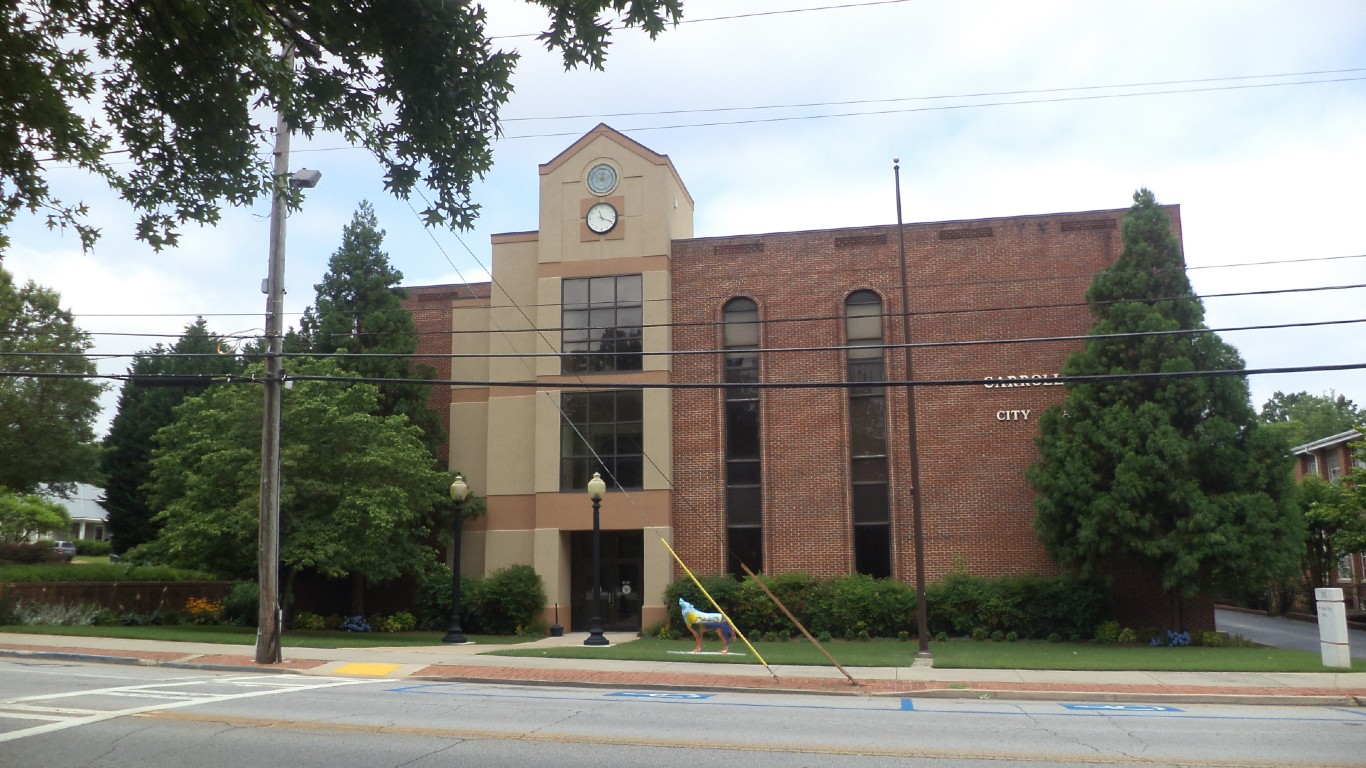
17. Carrollton, Georgia
> Overall score: 61.14
> Best ranking business aspect: Business Costs
> Median household income: $42,942– #1,146 out of 1,337 cities
> Unemployment rate in June 2021: n/a
> Population:26,570 — #1,205 out of 1,337 cities
[in-text-ad-2]
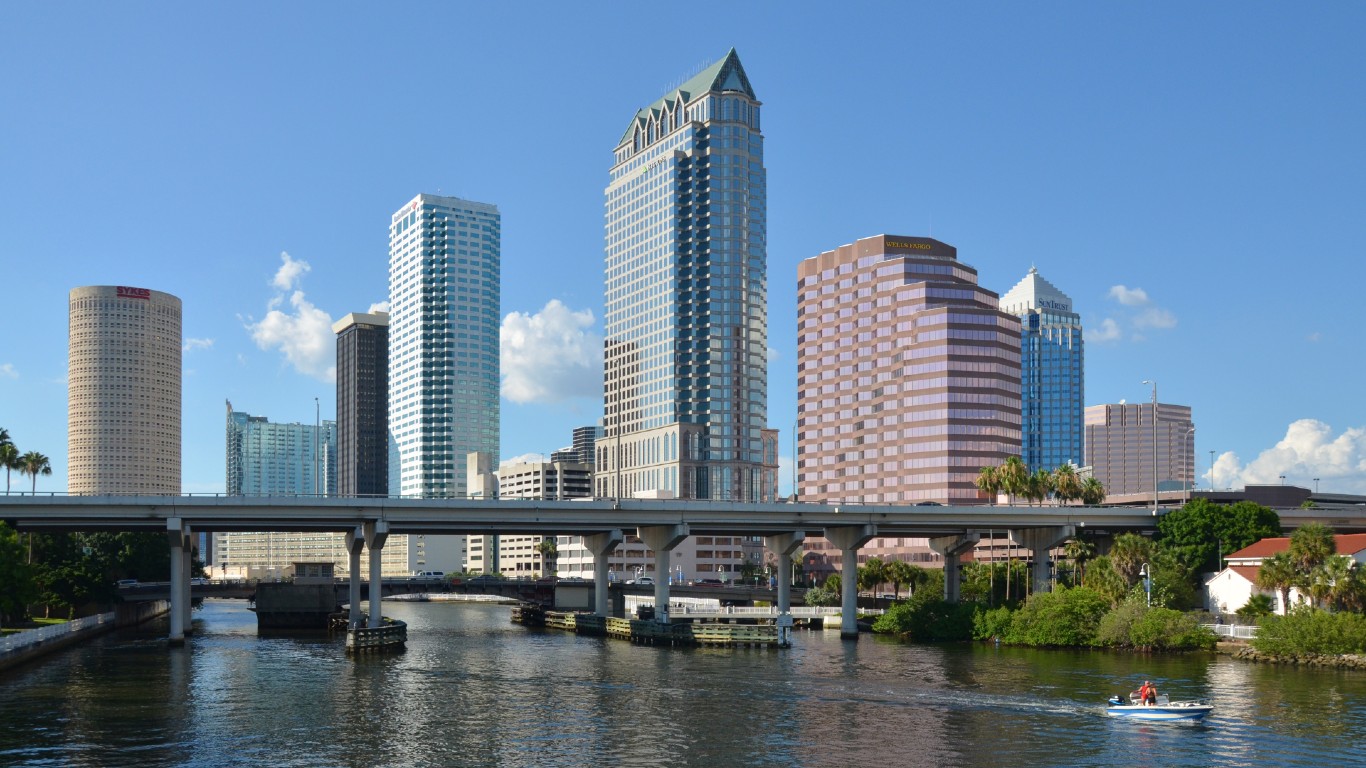
16. East Lake-Orient Park, Florida
> Overall score: 61.15
> Best ranking business aspect: Business Costs
> Median household income: $40,838– #1,182 out of 1,337 cities
> Unemployment rate in June 2021: n/a
> Population:29,346 — #1,067 out of 1,337 cities
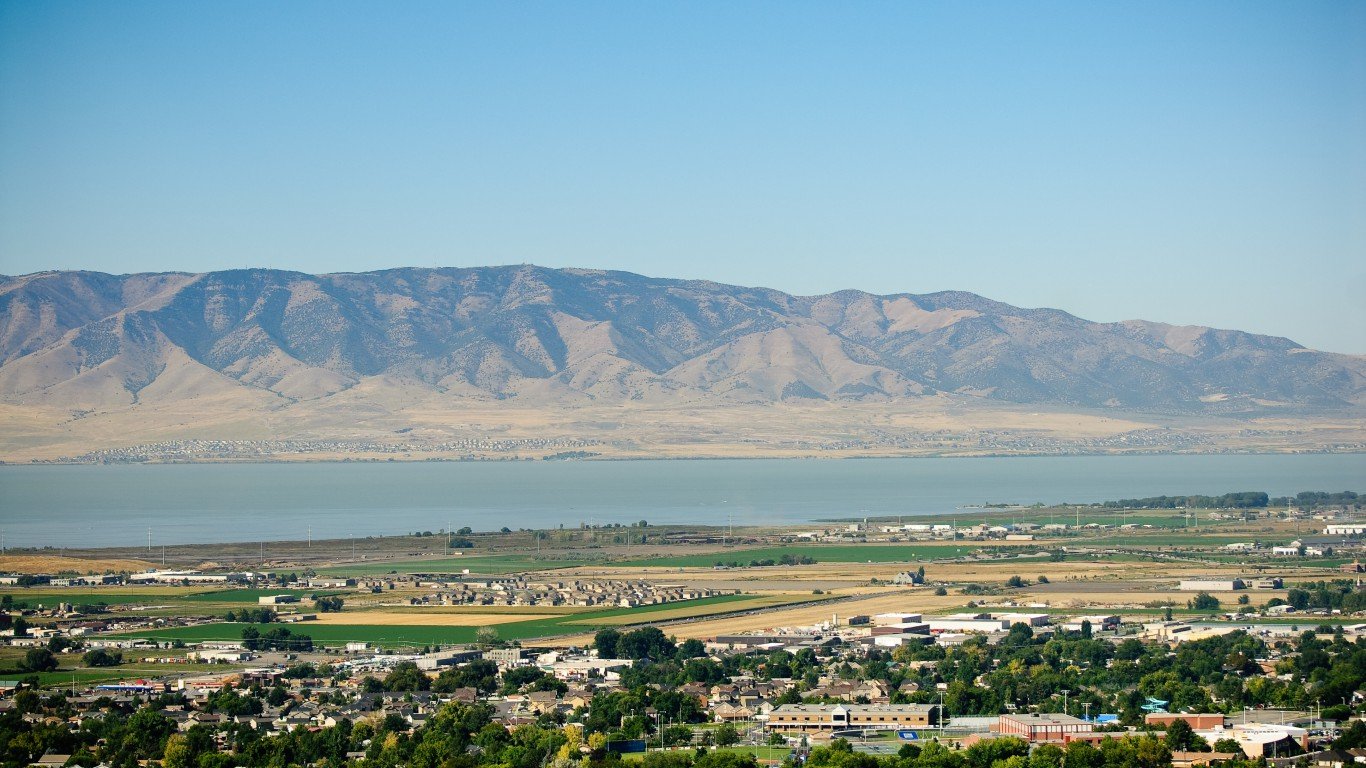
15. Pleasant Grove, Utah
> Overall score: 61.22
> Best ranking business aspect: Business Environment
> Median household income: $72,327– #521 out of 1,337 cities
> Unemployment rate in June 2021: 2.9% — #1,094 out of 1,337 cities
> Population:38,380 — #747 out of 1,337 cities
[in-text-ad]
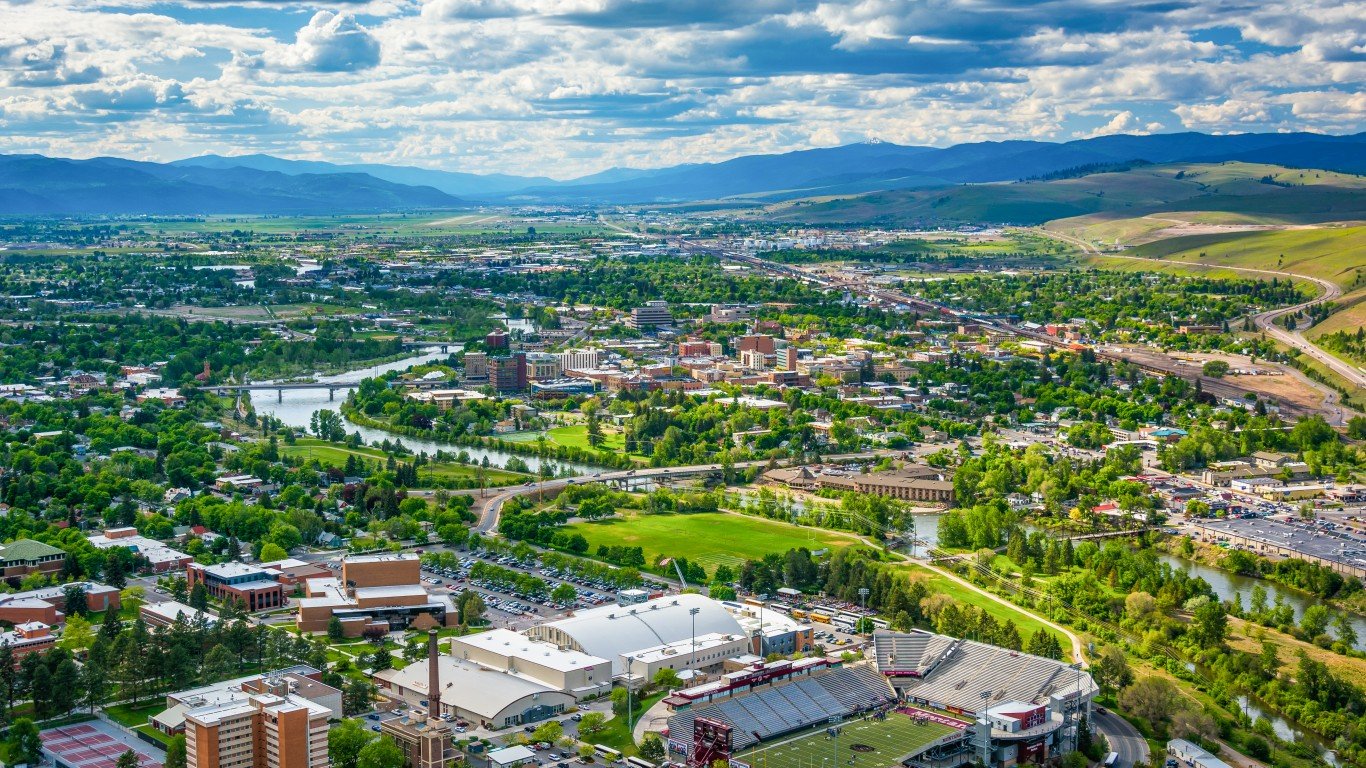
14. Missoula, Montana
> Overall score: 61.41
> Best ranking business aspect: Business Environment
> Median household income: $47,426– #1,027 out of 1,337 cities
> Unemployment rate in June 2021: 3.8% — #981 out of 1,337 cities
> Population:73,710 — #186 out of 1,337 cities

13. Bend, Oregon
> Overall score: 61.62
> Best ranking business aspect: Business Environment
> Median household income: $65,662– #629 out of 1,337 cities
> Unemployment rate in June 2021: 4.6% — #817 out of 1,337 cities
> Population:93,917 — #43 out of 1,337 cities
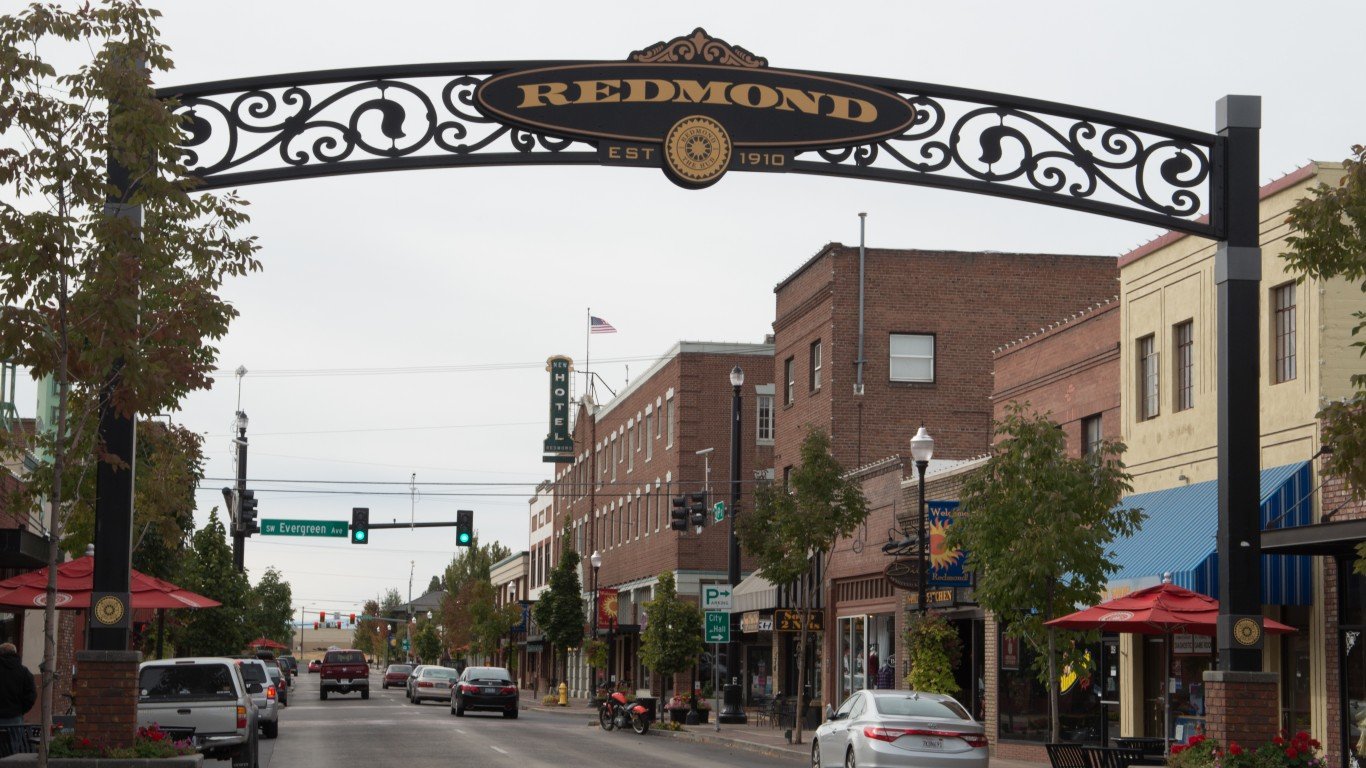
12. Redmond, Oregon
> Overall score: 61.99
> Best ranking business aspect: Business Environment
> Median household income: $65,088– #638 out of 1,337 cities
> Unemployment rate in June 2021: 6.4% — #424 out of 1,337 cities
> Population:30,167 — #1,030 out of 1,337 cities
[in-text-ad-2]
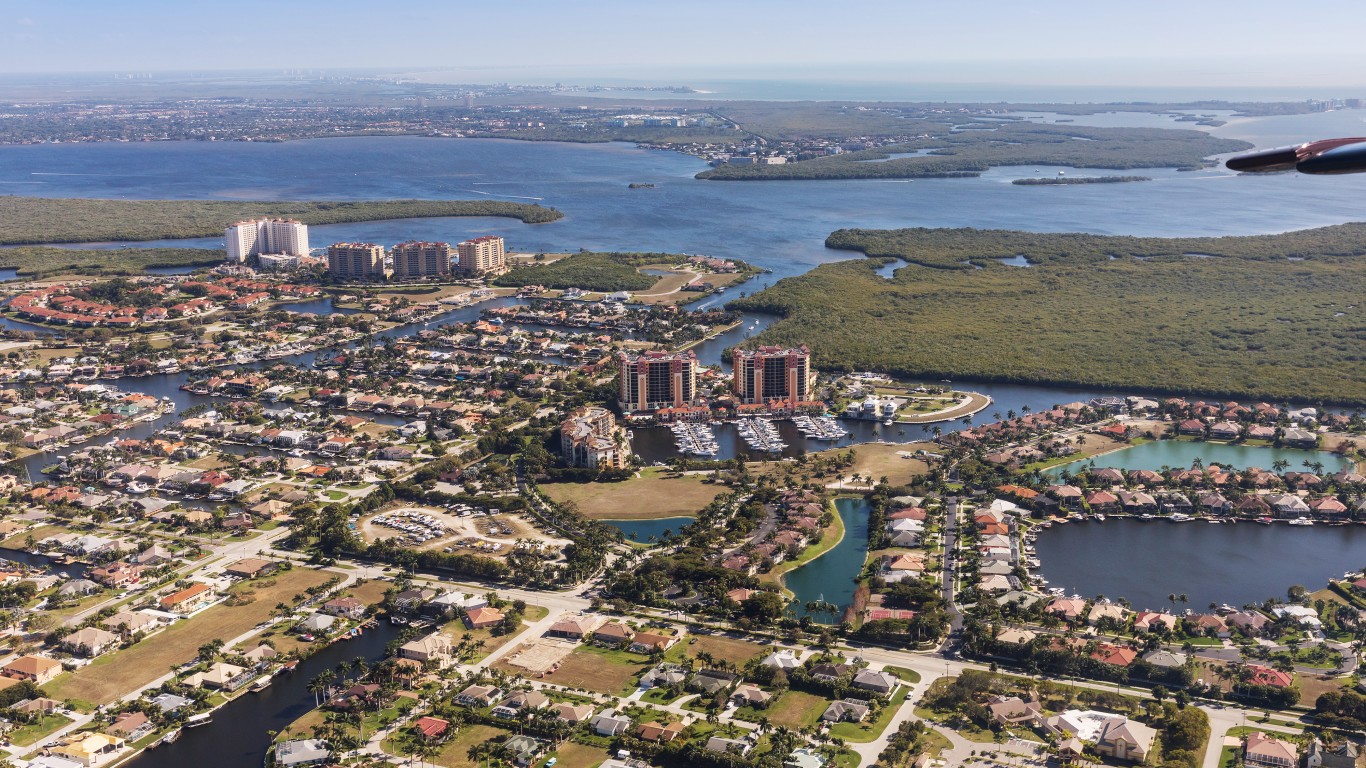
11. South Bradenton, Florida
> Overall score: 61.99
> Best ranking business aspect: Business Costs
> Median household income: $36,933– #1,242 out of 1,337 cities
> Unemployment rate in June 2021: n/a
> Population:25,227 — #1,284 out of 1,337 cities
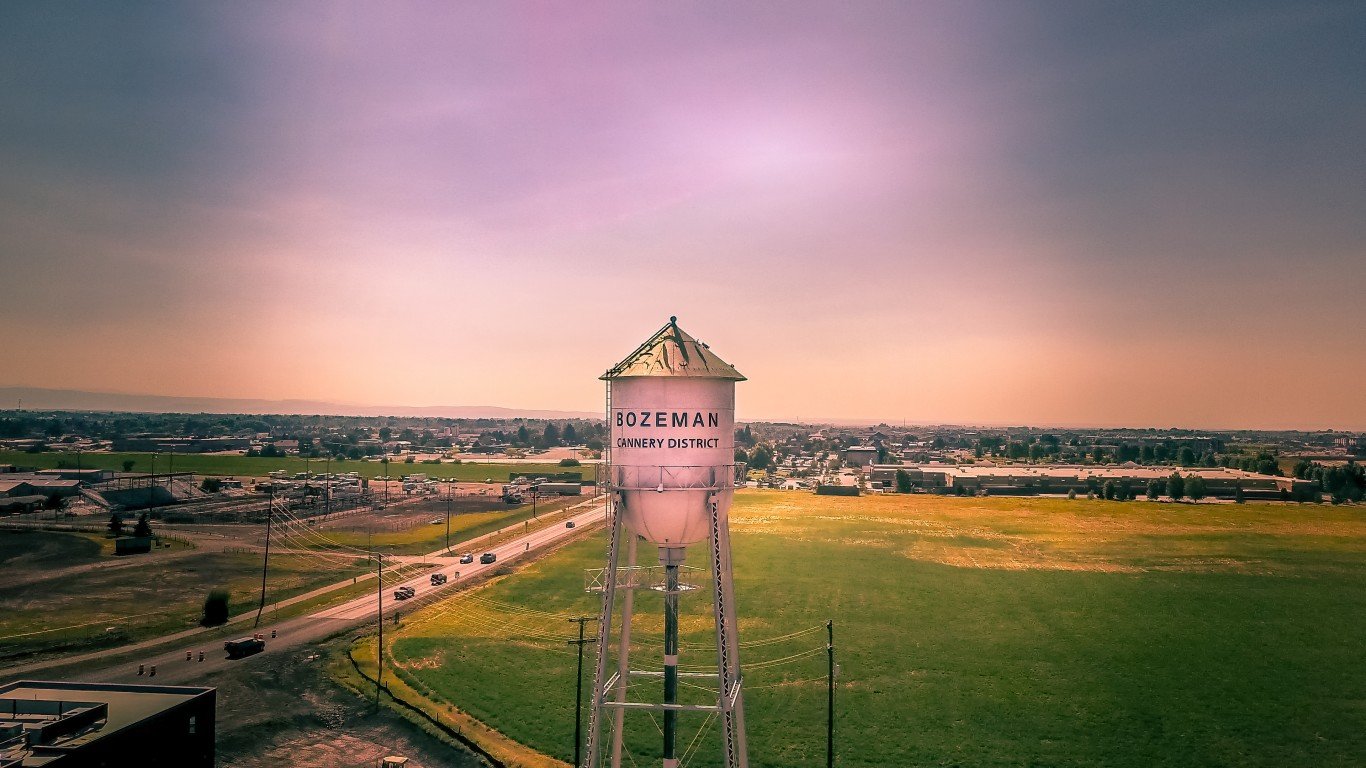
10. Bozeman, Montana
> Overall score: 62.29
> Best ranking business aspect: Business Environment
> Median household income: $55,569– #826 out of 1,337 cities
> Unemployment rate in June 2021: 3.2% — #1,064 out of 1,337 cities
> Population:46,746 — #553 out of 1,337 cities
[in-text-ad]
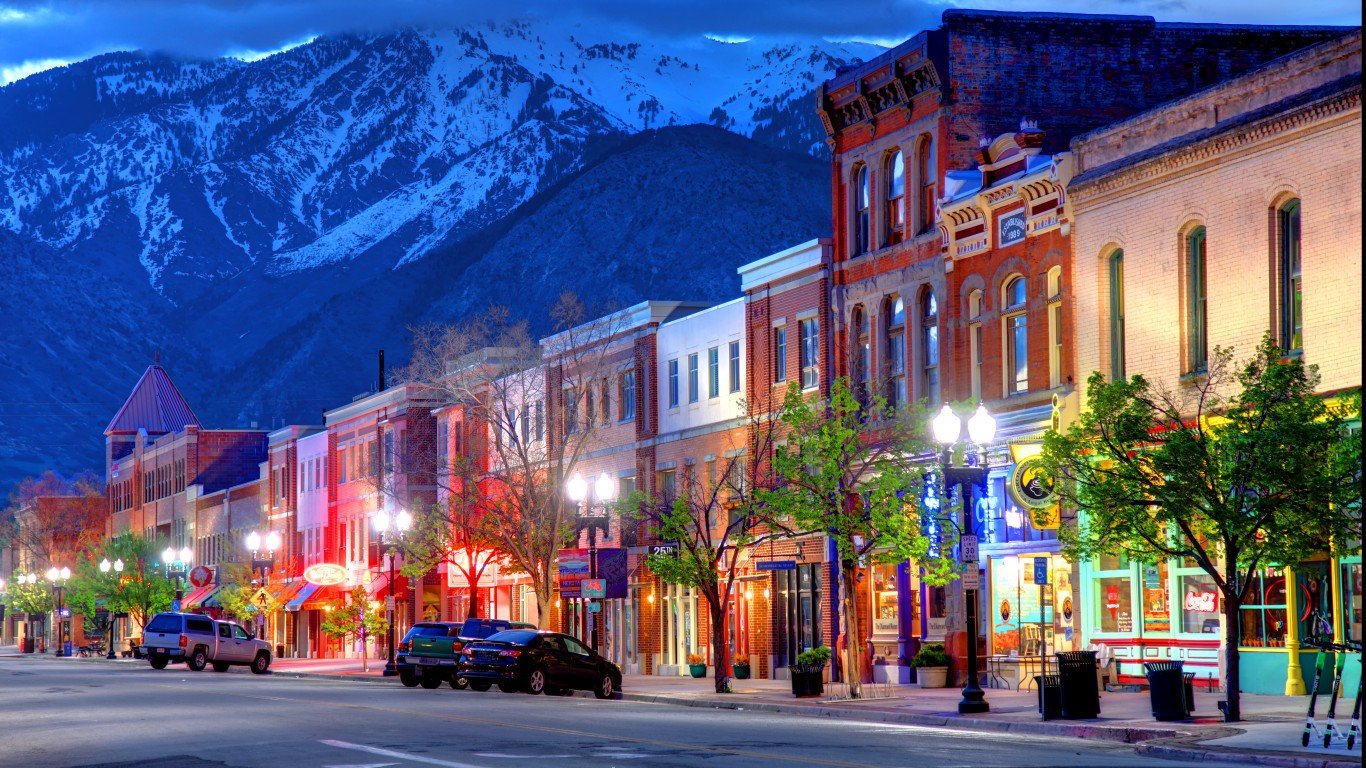
9. Clearfield, Utah
> Overall score: 62.68
> Best ranking business aspect: Access to Resources
> Median household income: $60,260– #739 out of 1,337 cities
> Unemployment rate in June 2021: 3.6% — #1,012 out of 1,337 cities
> Population:31,364 — #976 out of 1,337 cities
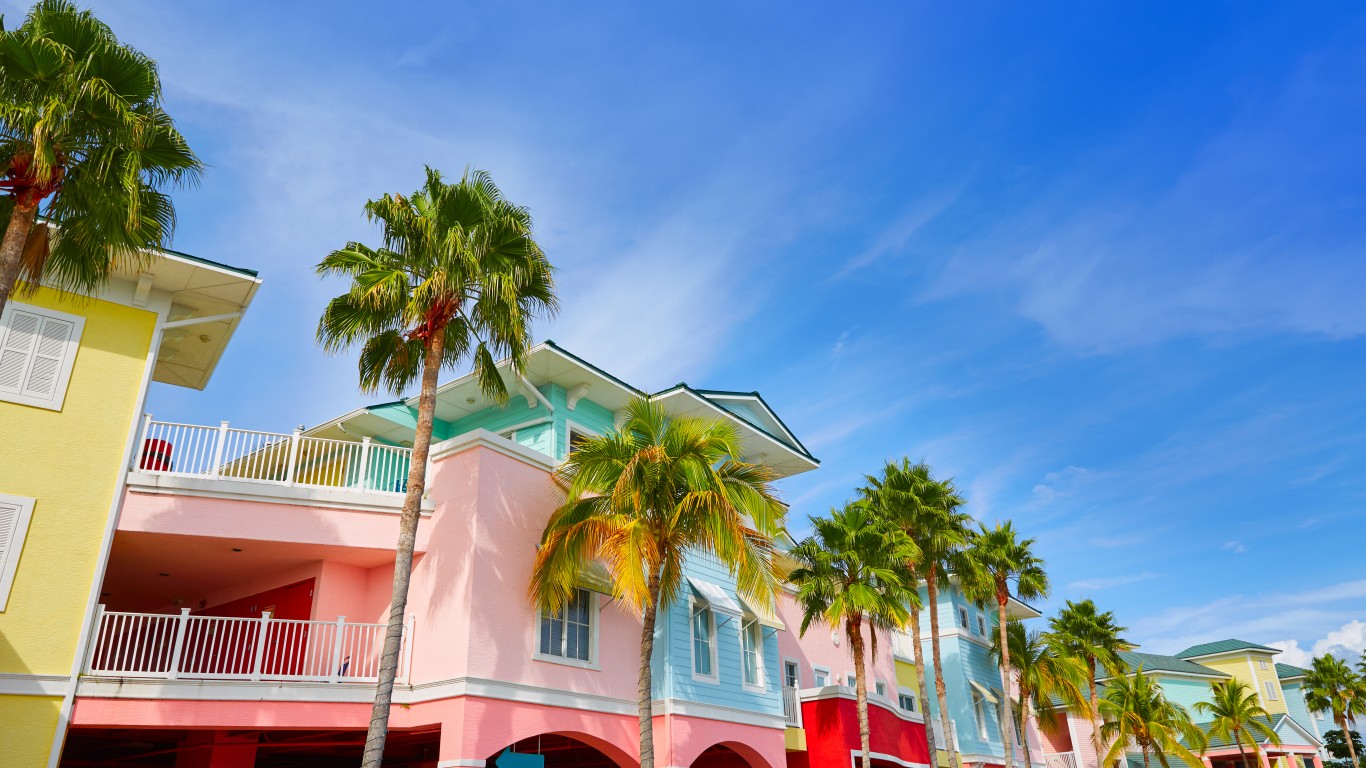
8. Fort Myers, Florida
> Overall score: 62.75
> Best ranking business aspect: Access to Resources
> Median household income: $46,409– #1,056 out of 1,337 cities
> Unemployment rate in June 2021: 5.9% — #527 out of 1,337 cities
> Population:79,927 — #131 out of 1,337 cities
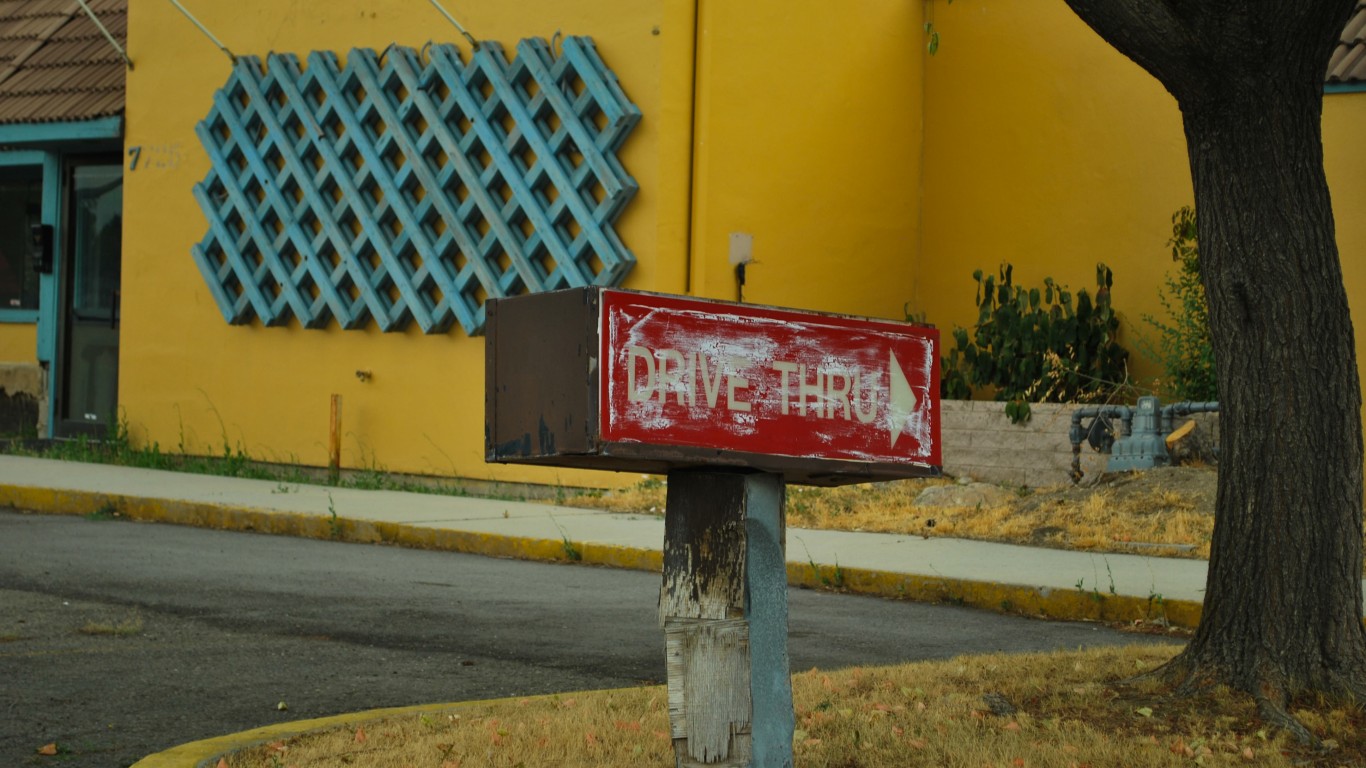
7. Midvale, Utah
> Overall score: 63.03
> Best ranking business aspect: Access to Resources
> Median household income: $60,216– #740 out of 1,337 cities
> Unemployment rate in June 2021: 3.1% — #1,074 out of 1,337 cities
> Population:33,318 — #909 out of 1,337 cities
[in-text-ad-2]
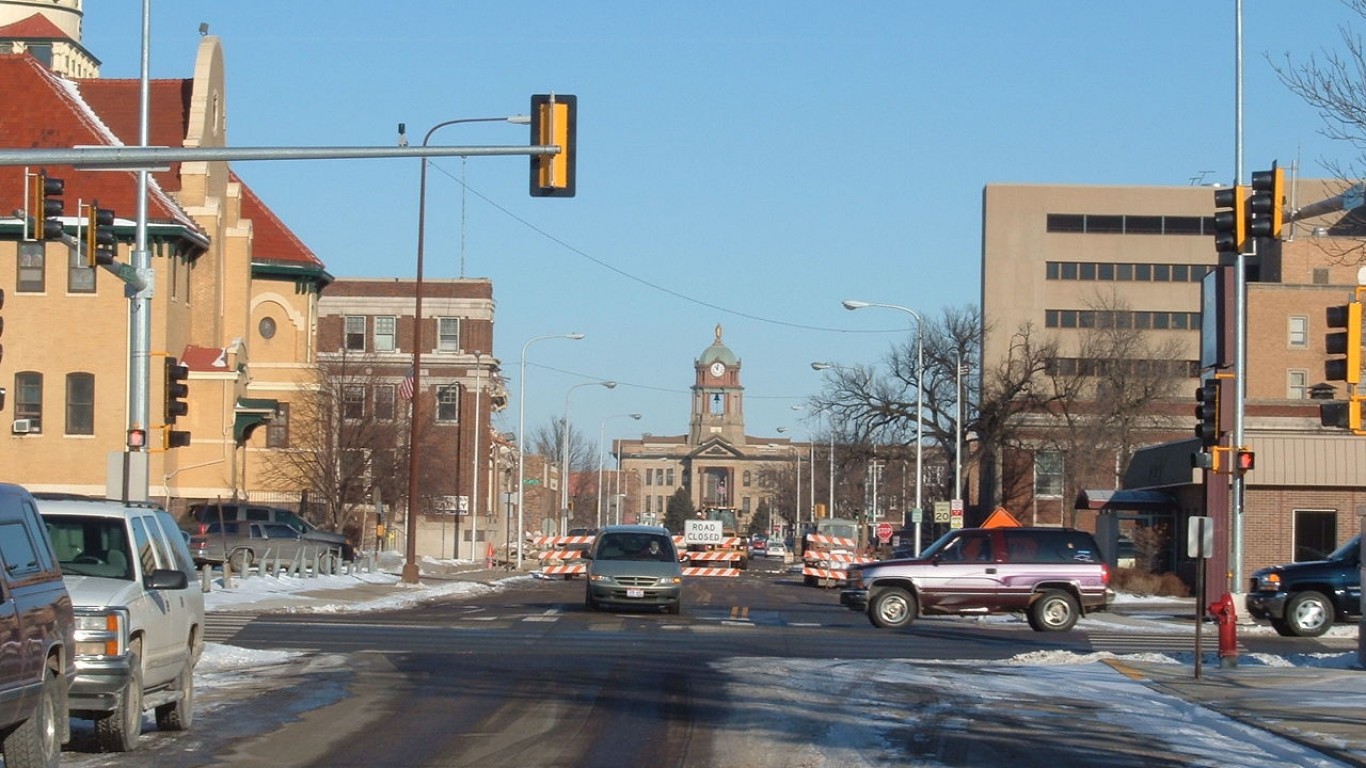
6. Aberdeen, South Dakota
> Overall score: 63.36
> Best ranking business aspect: Access to Resources
> Median household income: $52,651– #894 out of 1,337 cities
> Unemployment rate in June 2021: 3.5% — #1,029 out of 1,337 cities
> Population:28,225 — #1,112 out of 1,337 cities
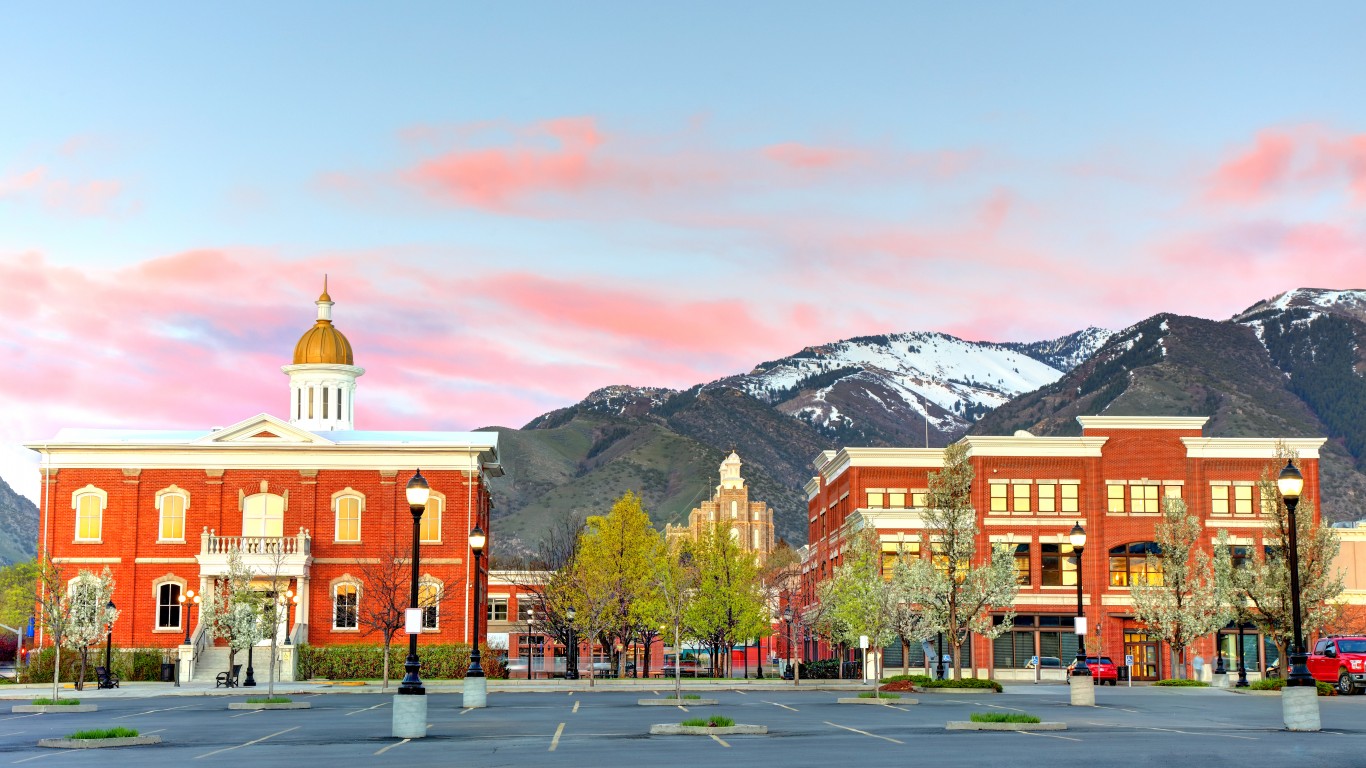
5. Logan, Utah
> Overall score: 65.21
> Best ranking business aspect: Access to Resources
> Median household income: $41,833– #1,169 out of 1,337 cities
> Unemployment rate in June 2021: 2.5% — #1,117 out of 1,337 cities
> Population:50,863 — #474 out of 1,337 cities
[in-text-ad]
4. Washington, Utah
> Overall score: 65.97
> Best ranking business aspect: Business Environment
> Median household income: $66,479– #613 out of 1,337 cities
> Unemployment rate in June 2021: n/a
> Population:26,583 — #1,204 out of 1,337 cities
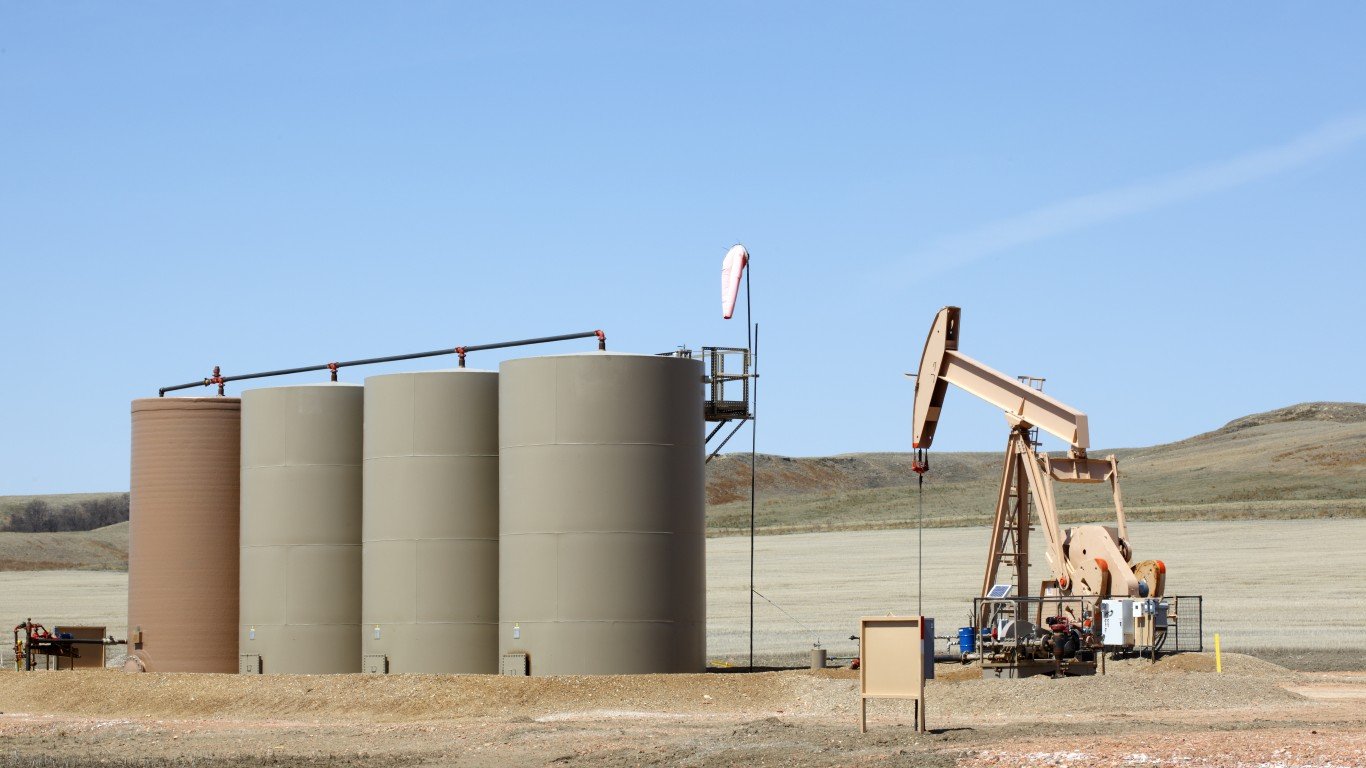
3. Williston, North Dakota
> Overall score: 66.39
> Best ranking business aspect: Business Environment
> Median household income: $84,710– #342 out of 1,337 cities
> Unemployment rate in June 2021: n/a
> Population:27,250 — #1,159 out of 1,337 cities

2. Cedar City, Utah
> Overall score: 67.48
> Best ranking business aspect: Business Environment
> Median household income: $48,346– #1,000 out of 1,337 cities
> Unemployment rate in June 2021: 3.4% — #1,039 out of 1,337 cities
> Population:32,067 — #953 out of 1,337 cities
[in-text-ad-2]

1. St. George, Utah
> Overall score: 67.67
> Best ranking business aspect: Business Environment
> Median household income: $58,259– #775 out of 1,337 cities
> Unemployment rate in June 2021: 3.3% — #1,051 out of 1,337 cities
> Population:84,500 — #96 out of 1,337 cities
Essential Tips for Investing: Sponsored
A financial advisor can help you understand the advantages and disadvantages of investment properties. Finding a qualified financial advisor doesn’t have to be hard. SmartAsset’s free tool matches you with up to three financial advisors who serve your area, and you can interview your advisor matches at no cost to decide which one is right for you. If you’re ready to find an advisor who can help you achieve your financial goals, get started now.
Investing in real estate can diversify your portfolio. But expanding your horizons may add additional costs. If you’re an investor looking to minimize expenses, consider checking out online brokerages. They often offer low investment fees, helping you maximize your profit.
Thank you for reading! Have some feedback for us?
Contact the 24/7 Wall St. editorial team.
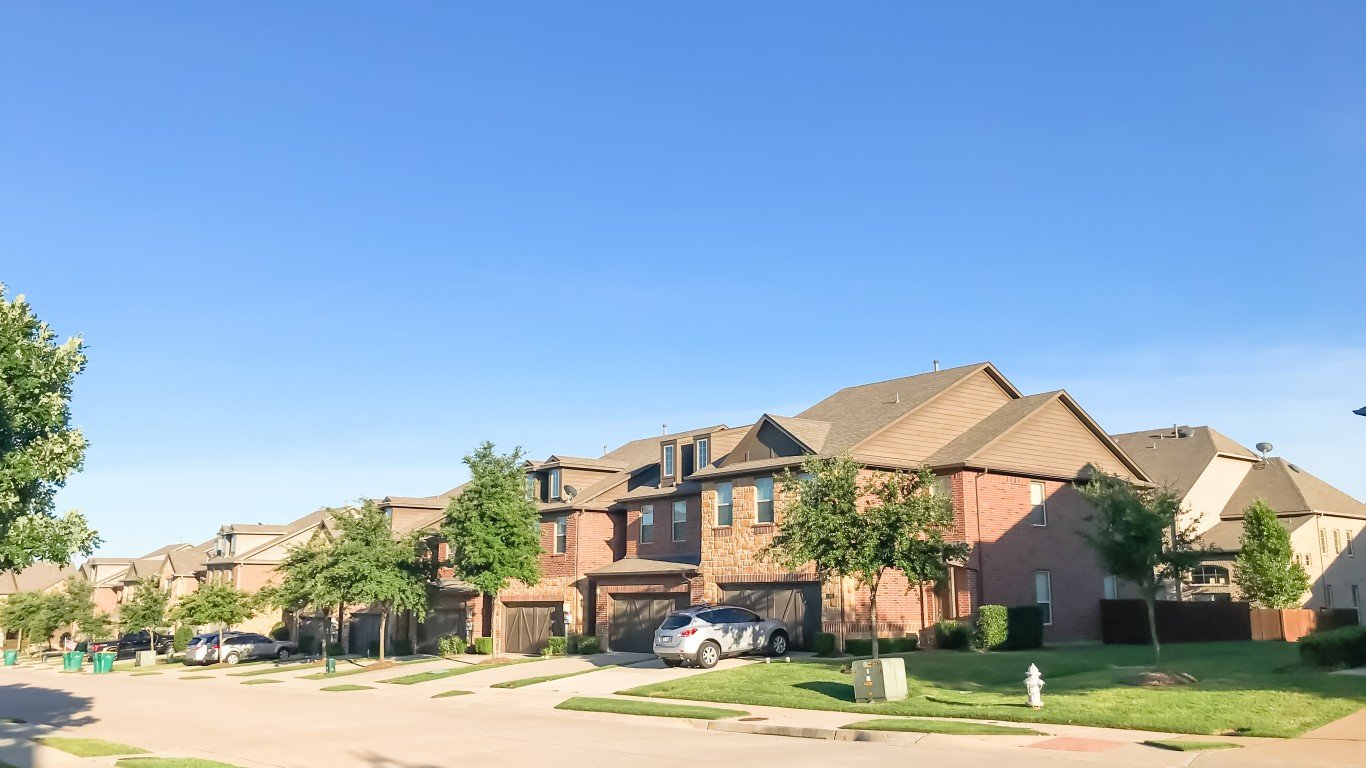 24/7 Wall St.
24/7 Wall St.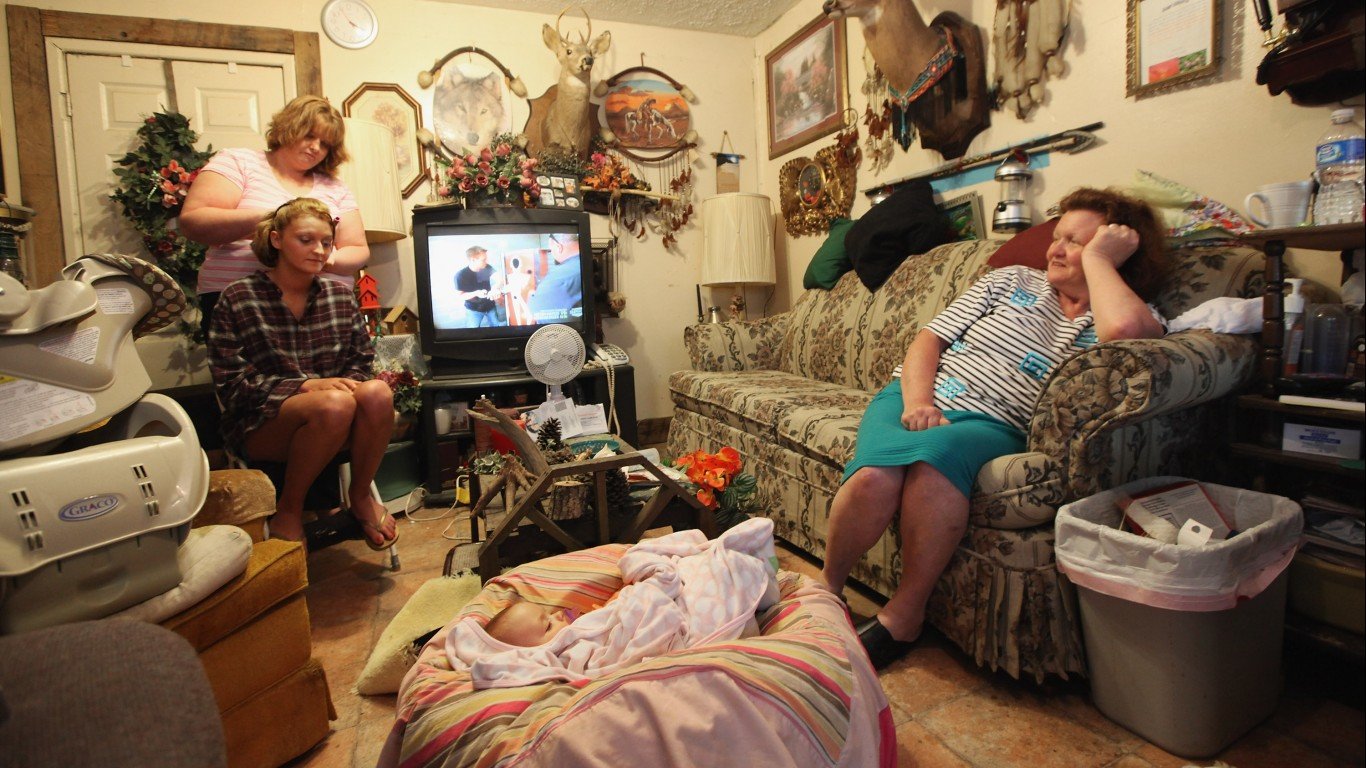 24/7 Wall St.
24/7 Wall St.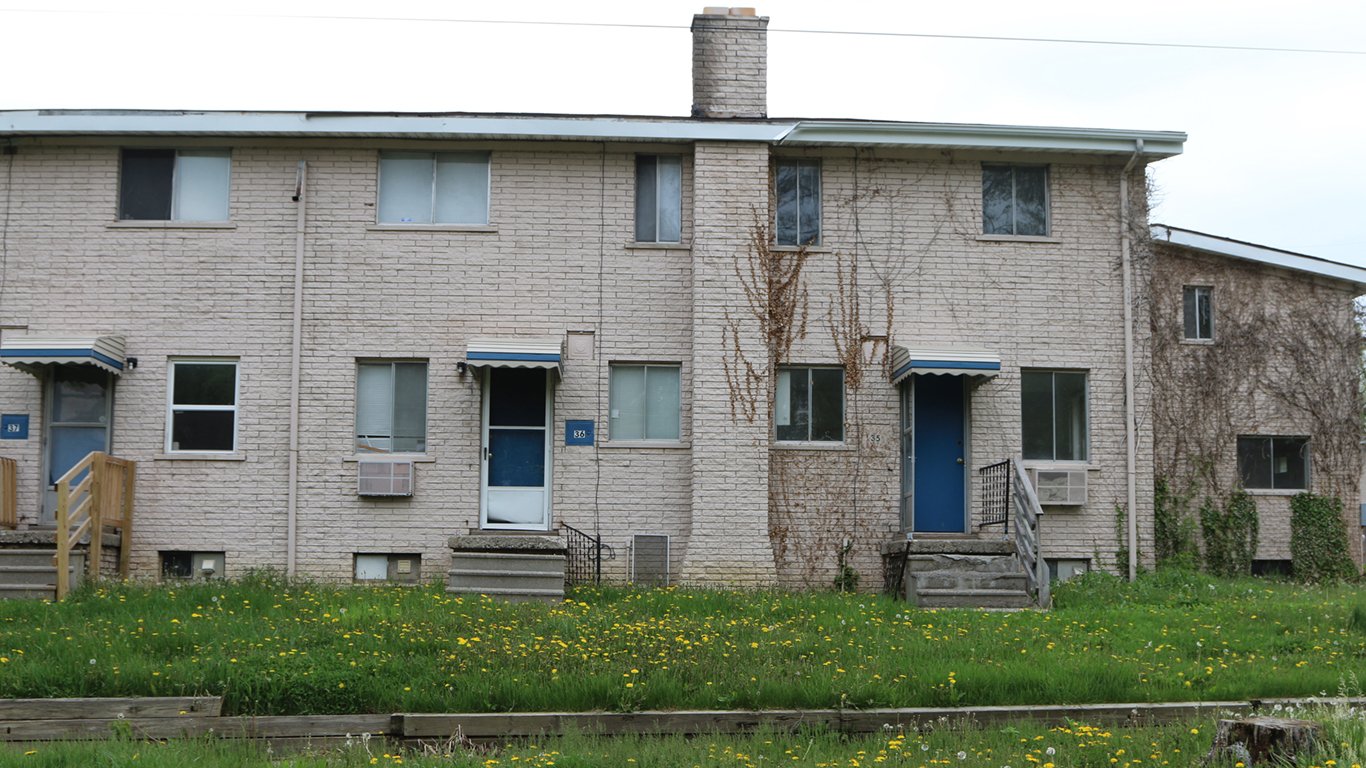 24/7 Wall St.
24/7 Wall St.